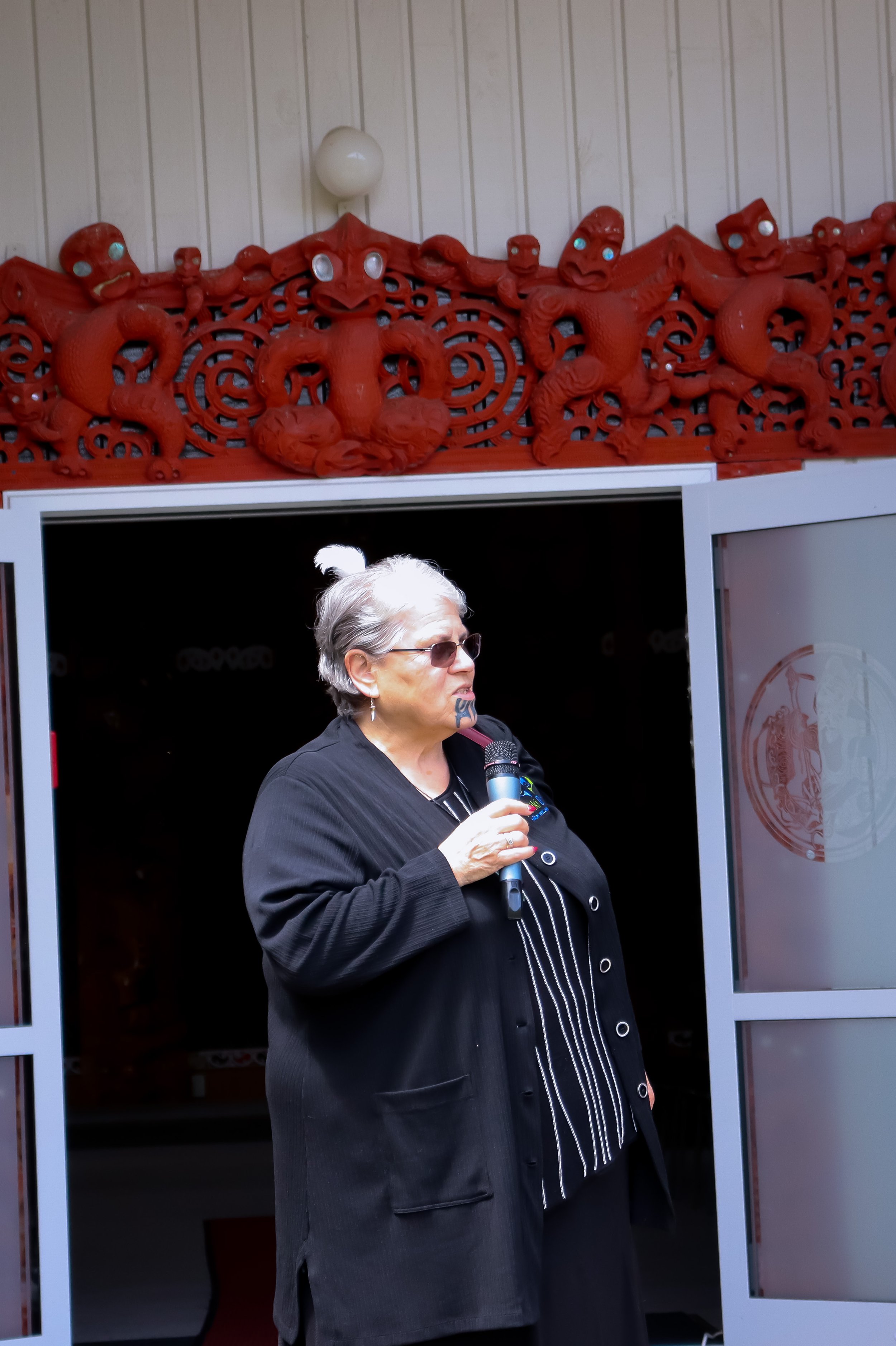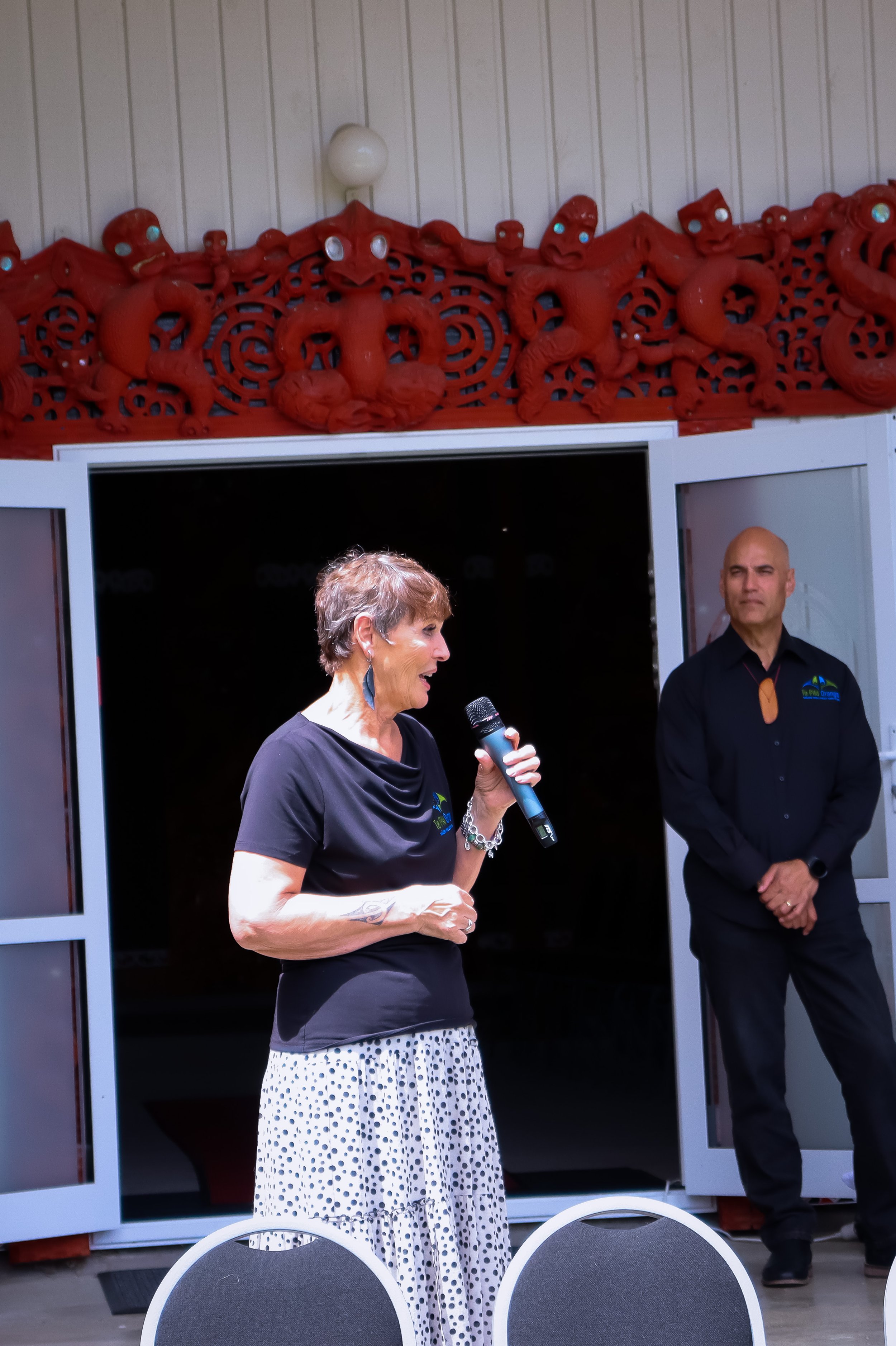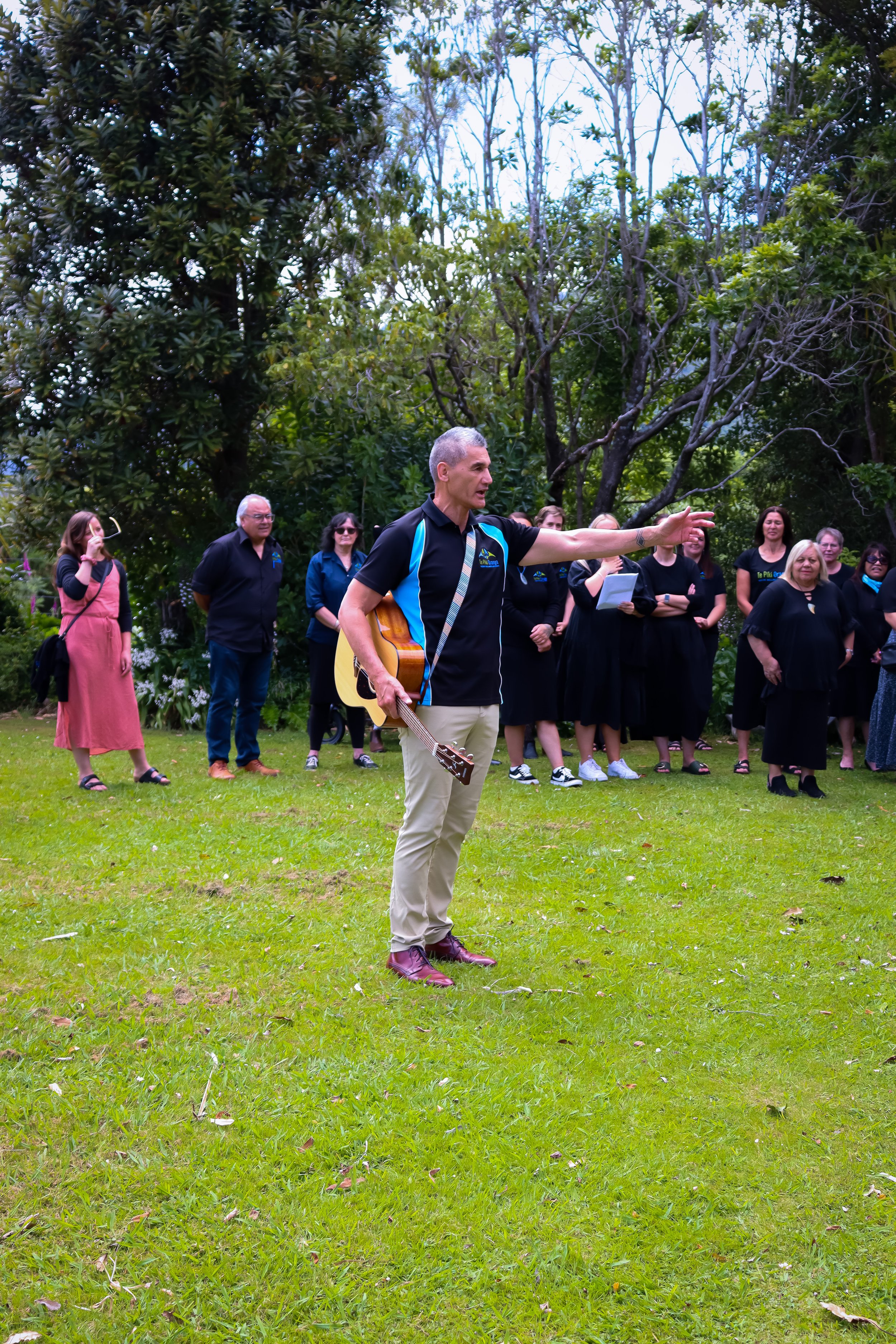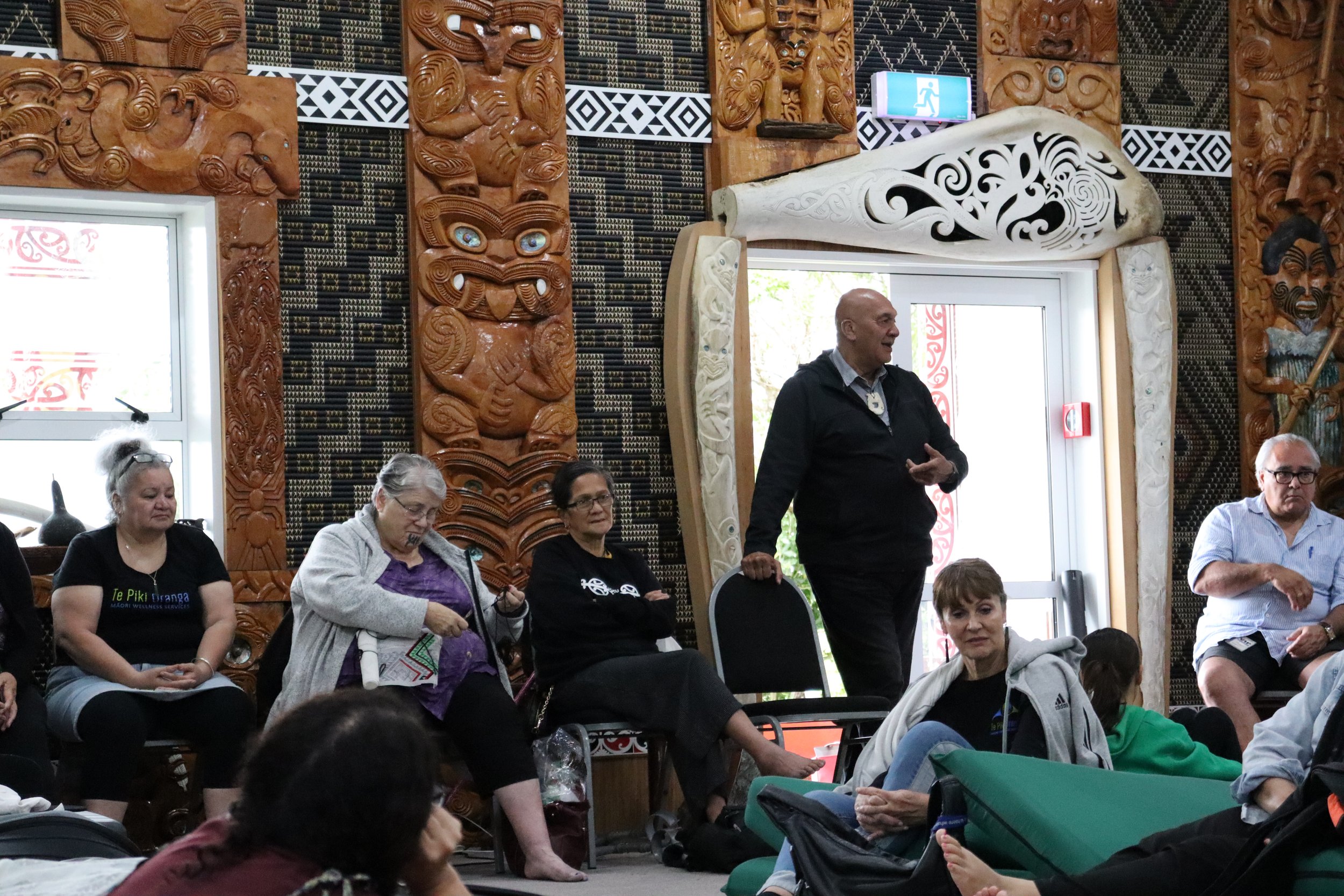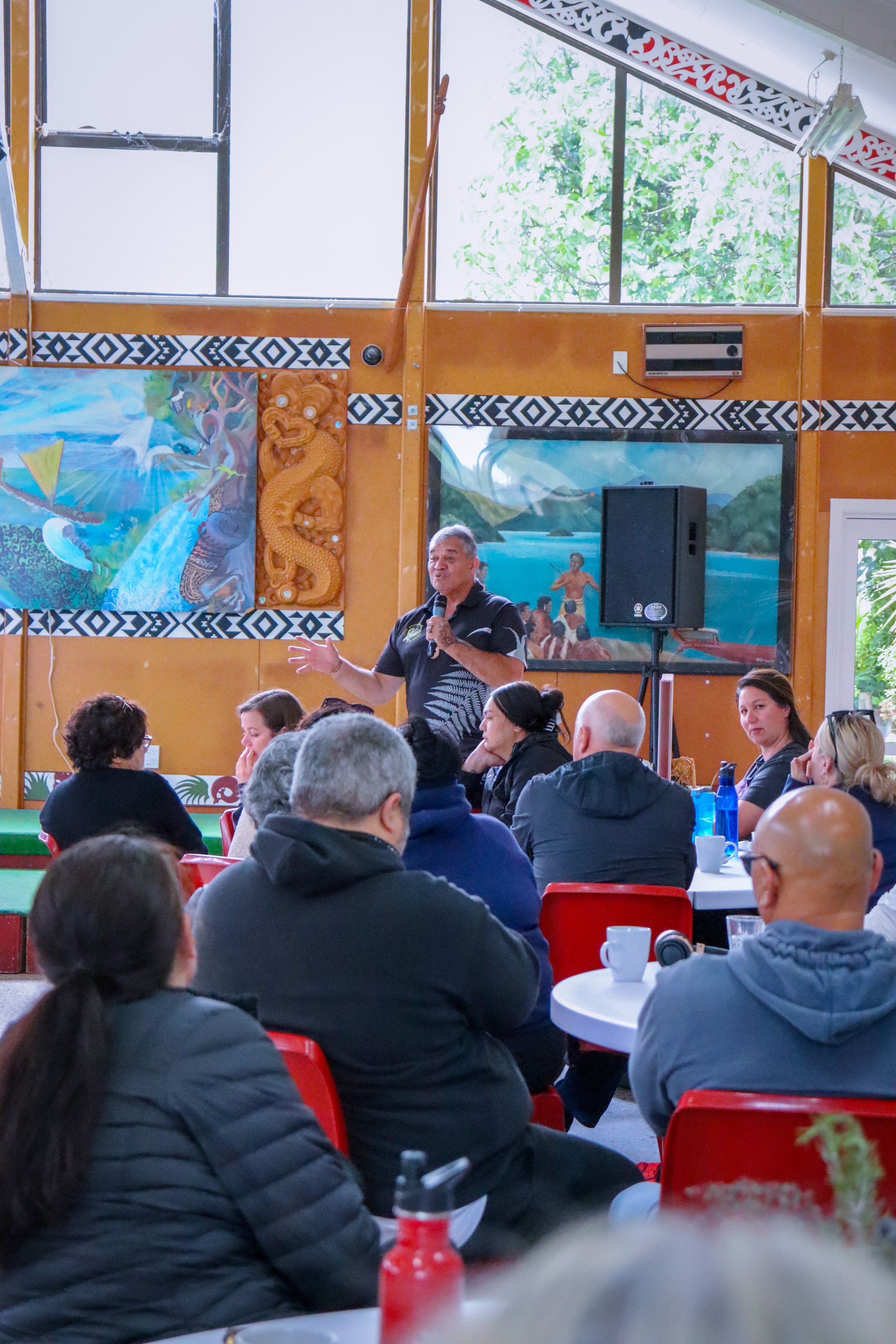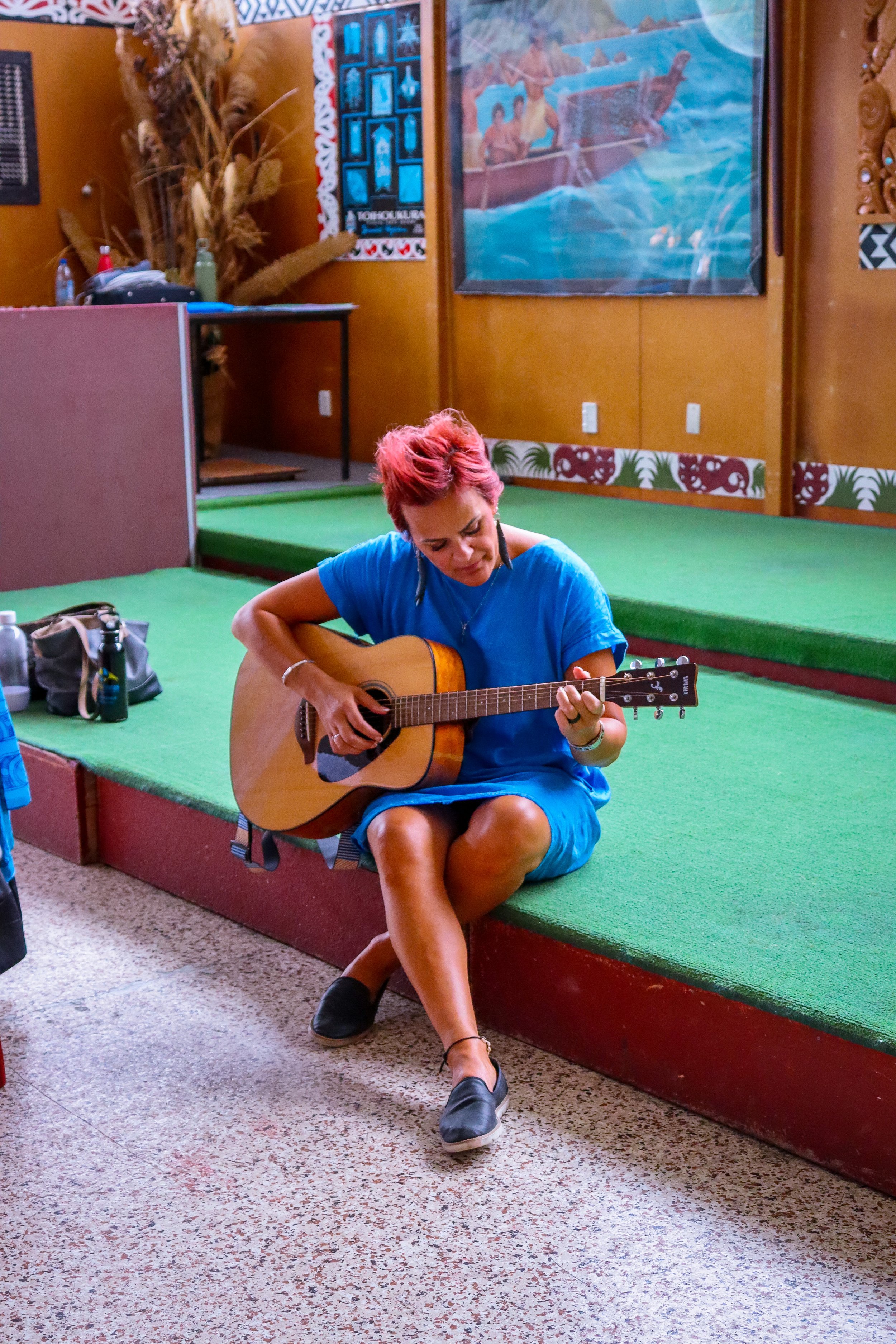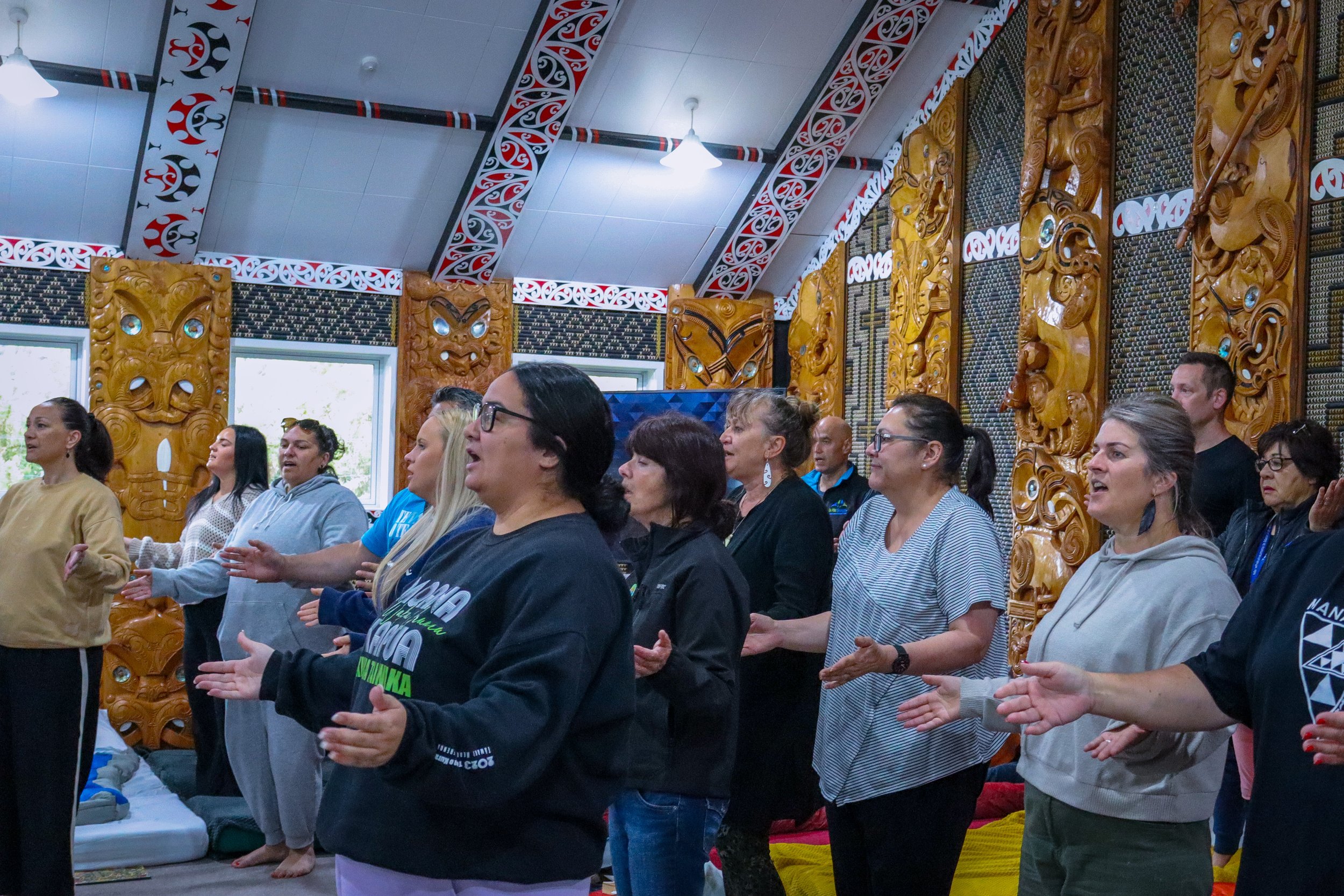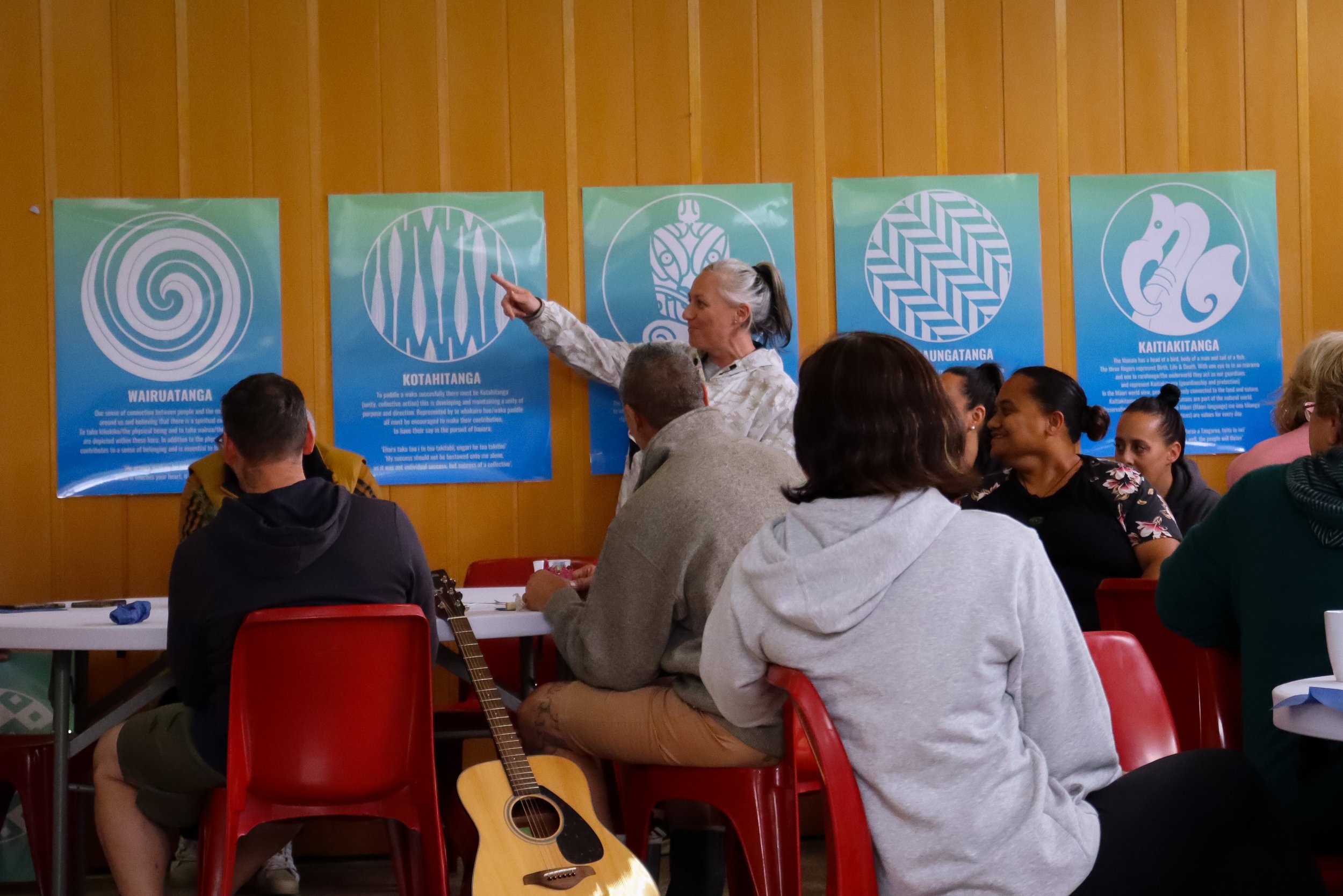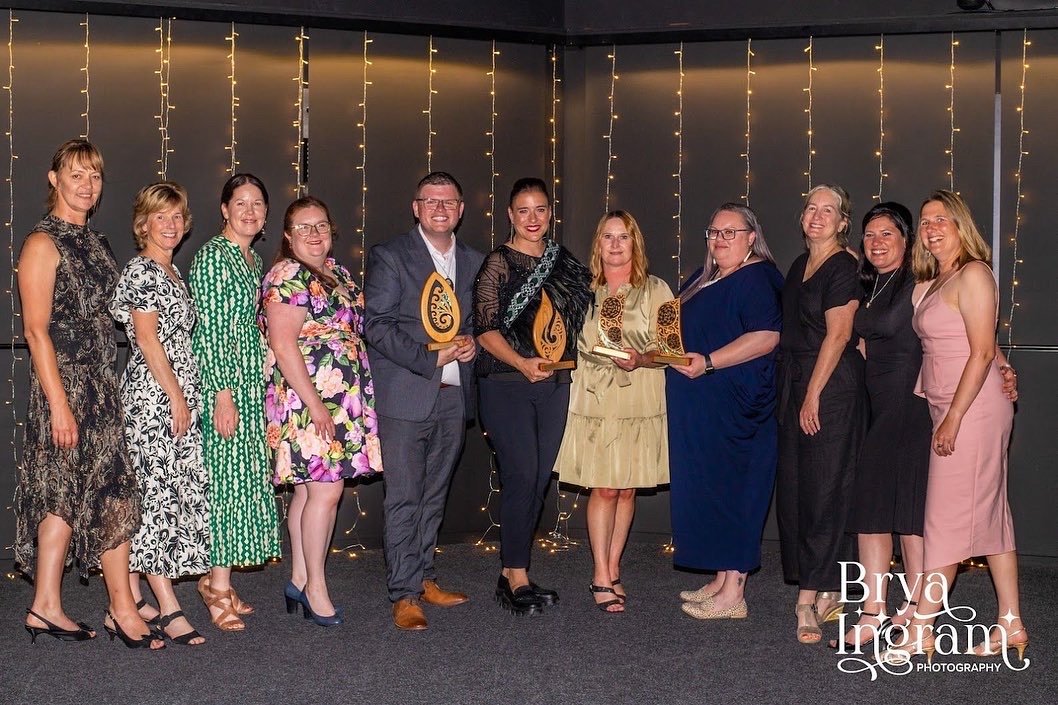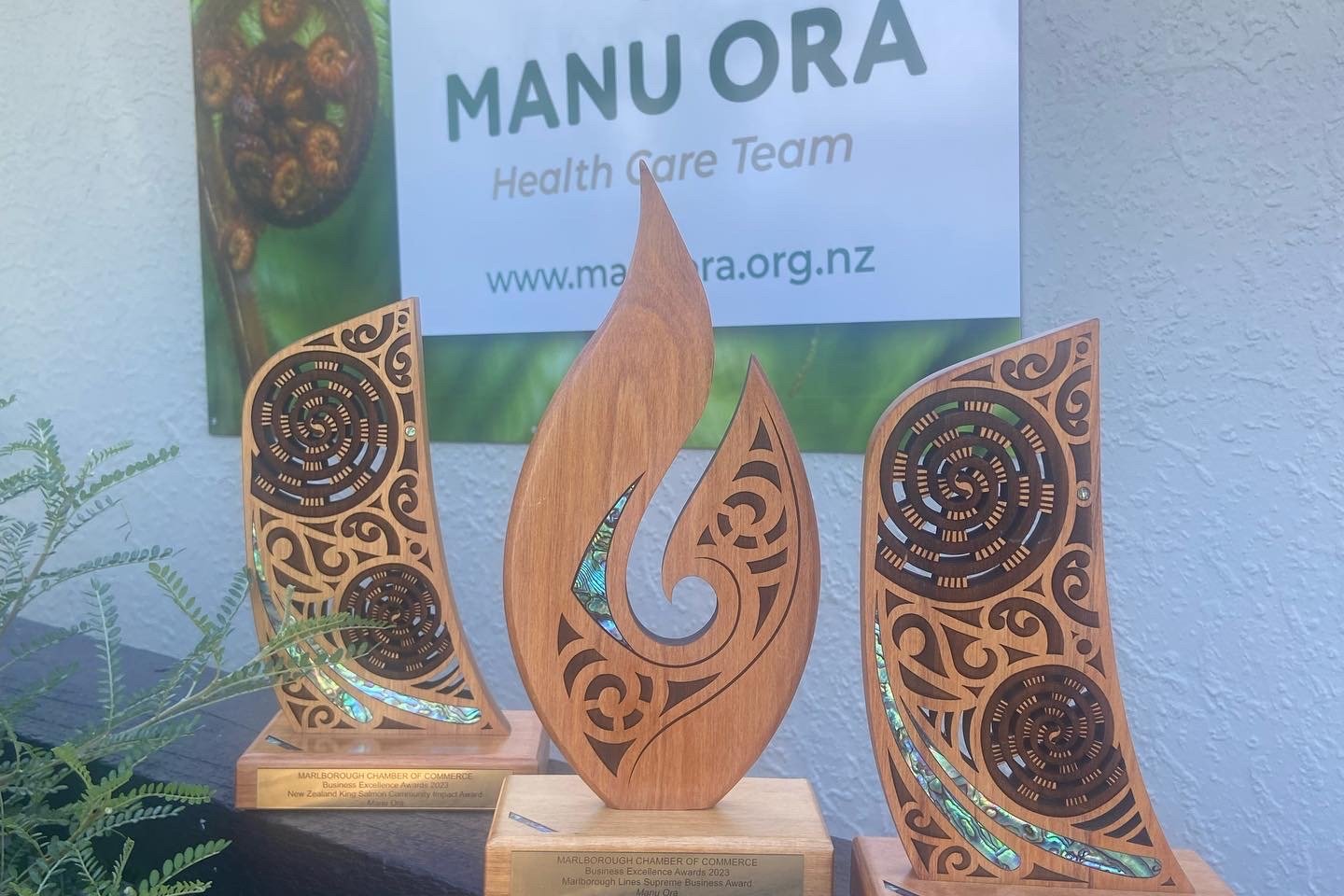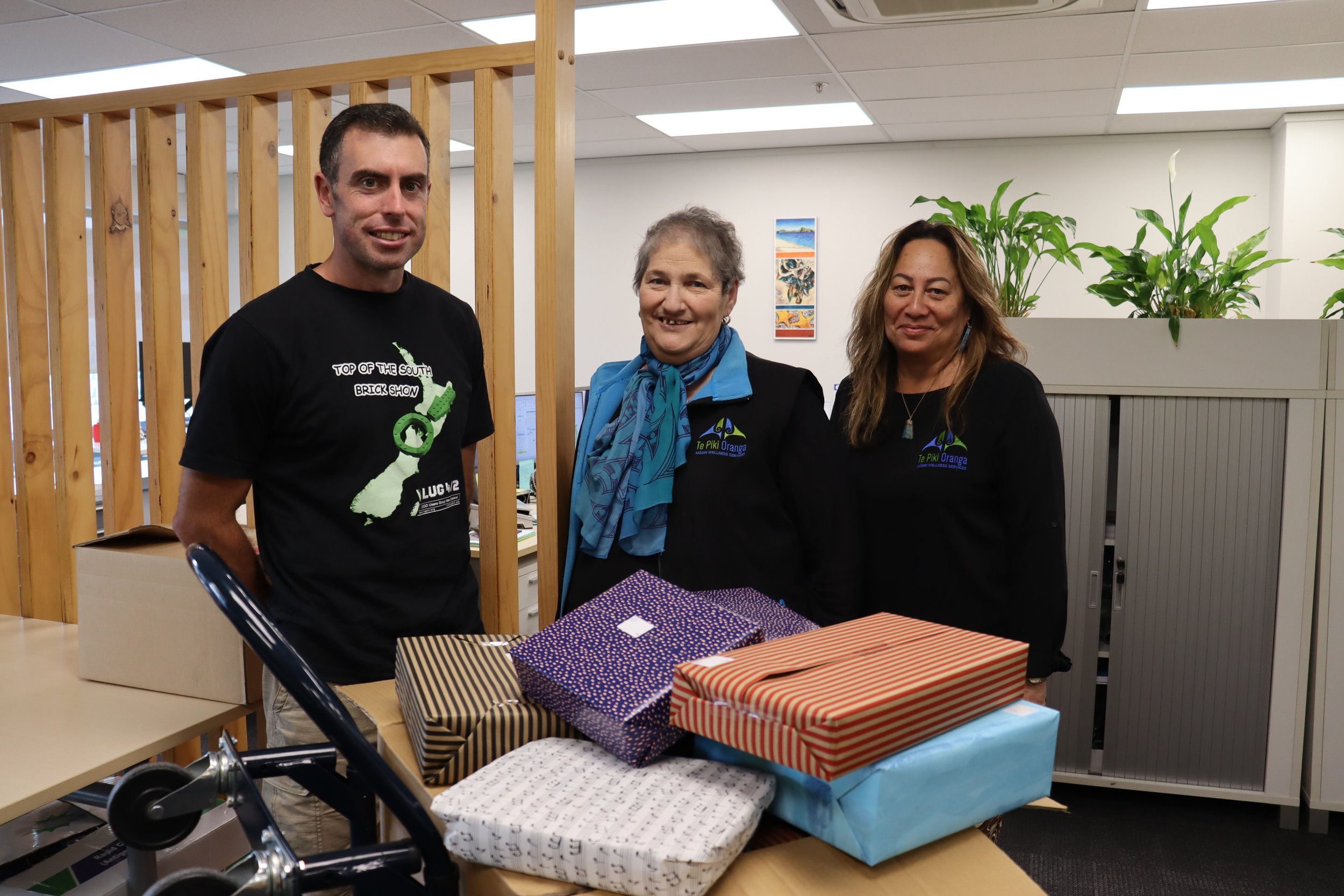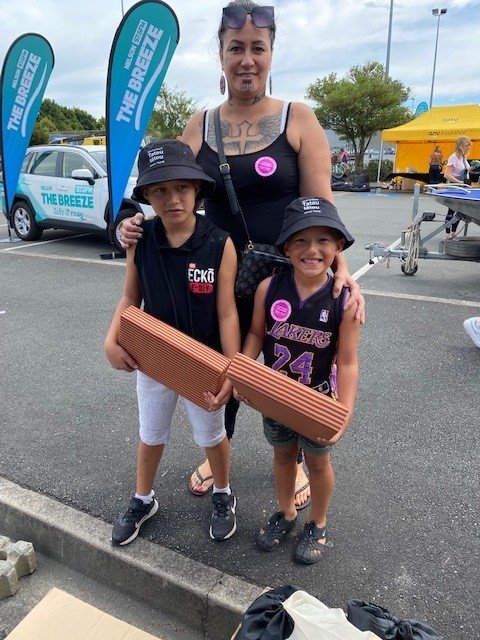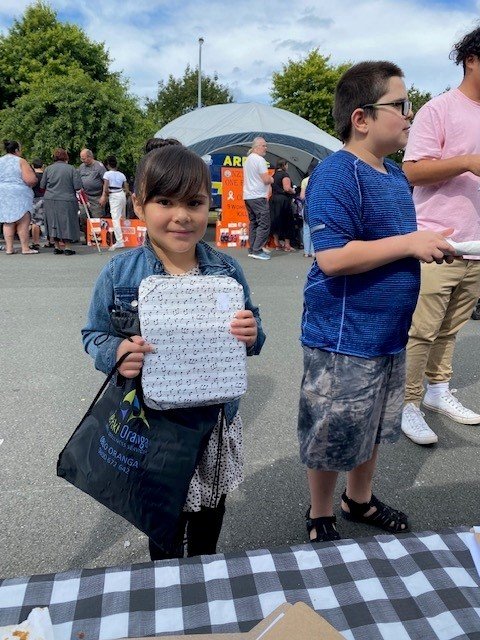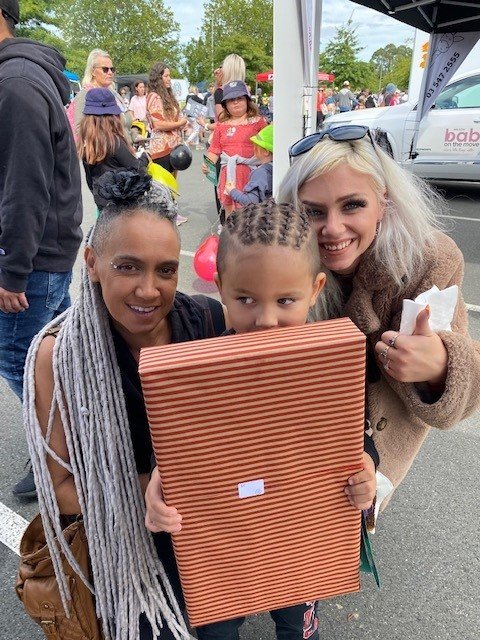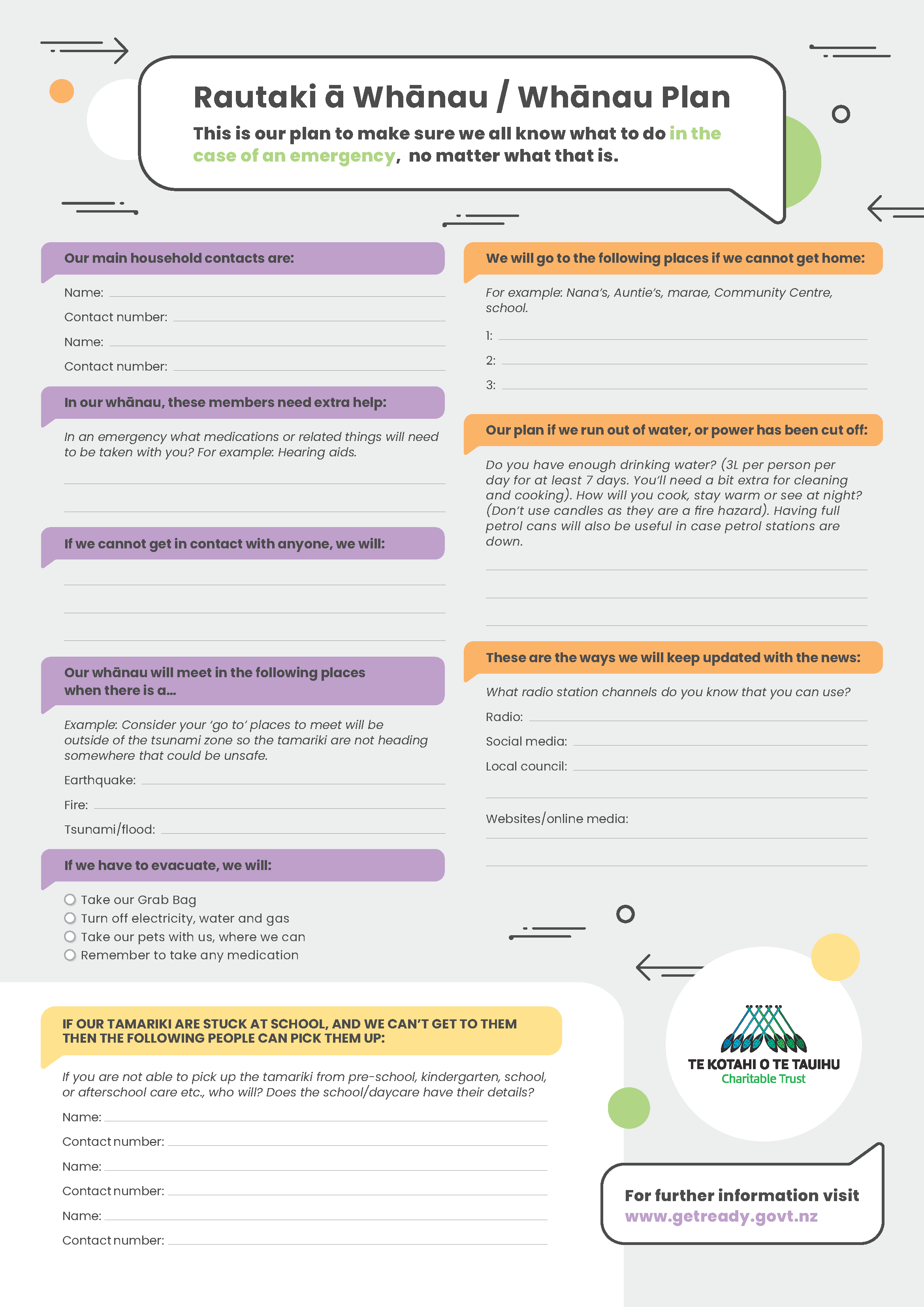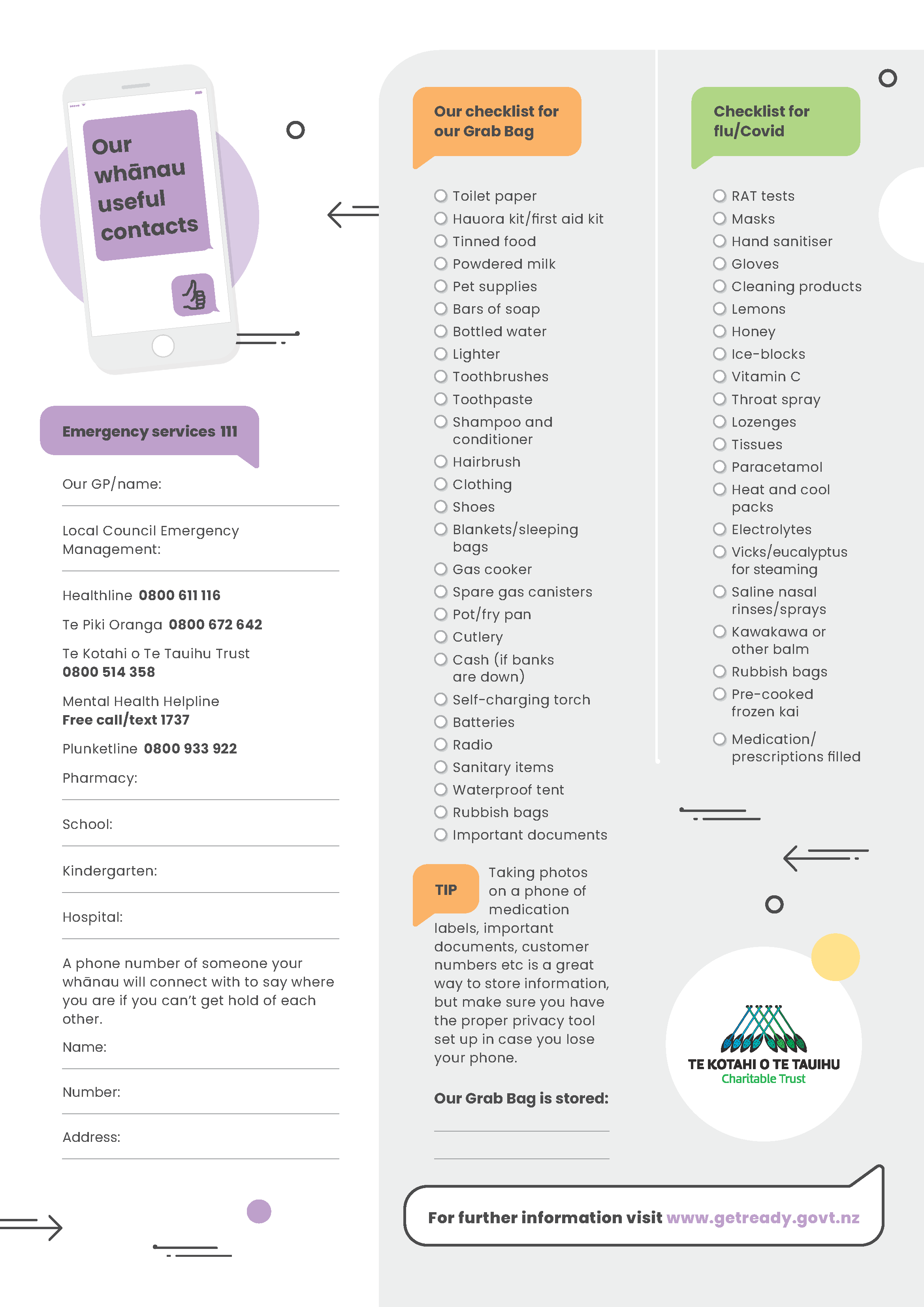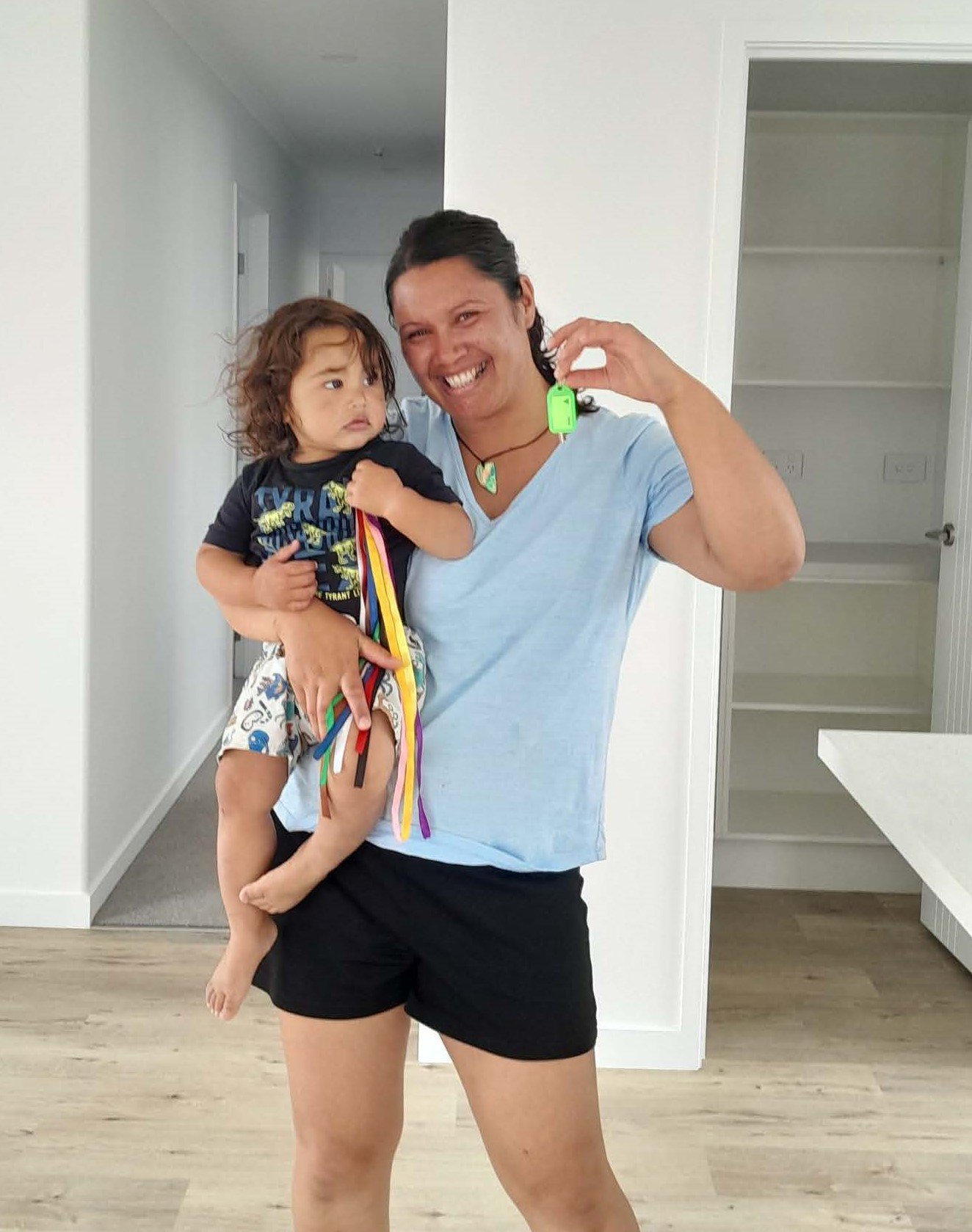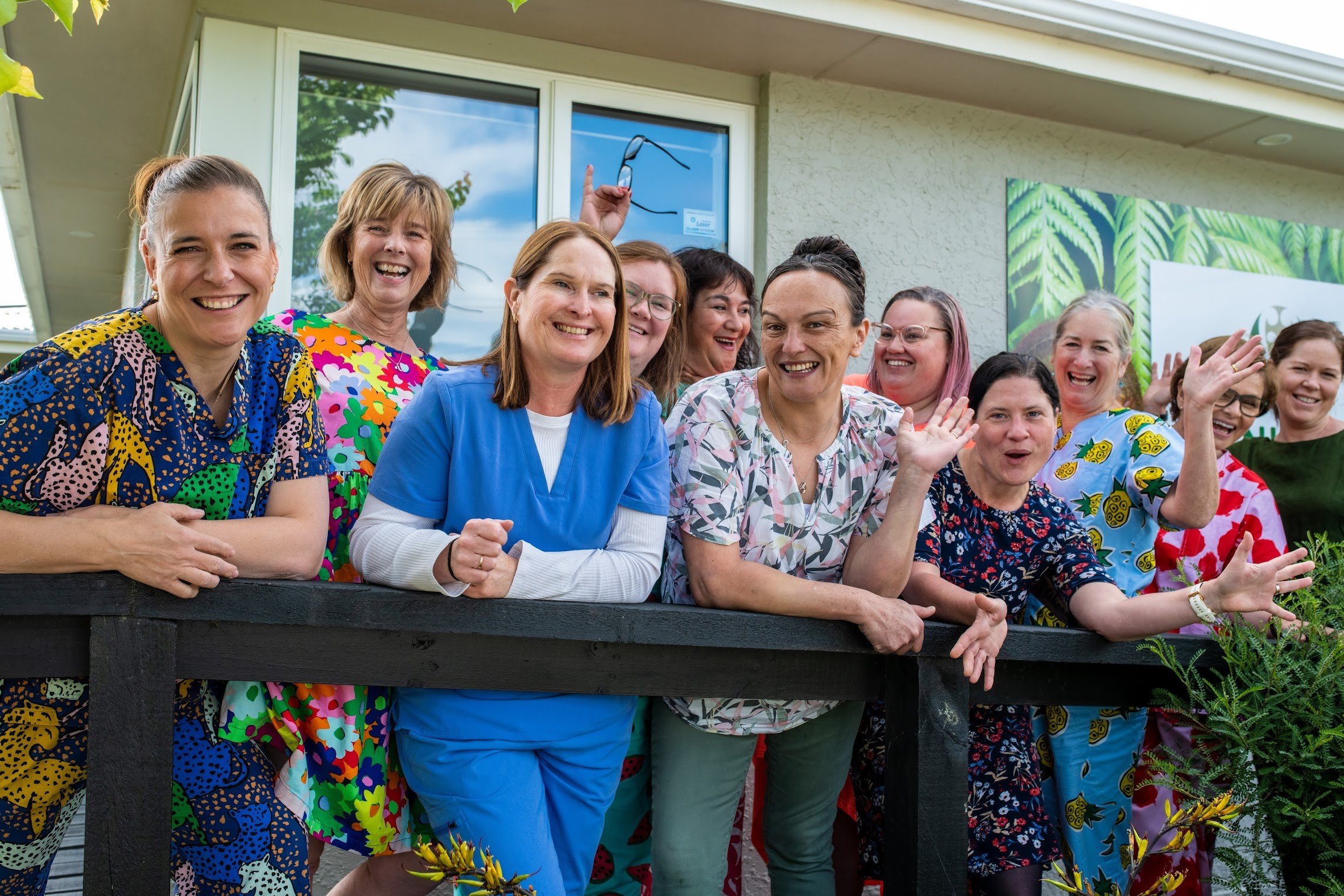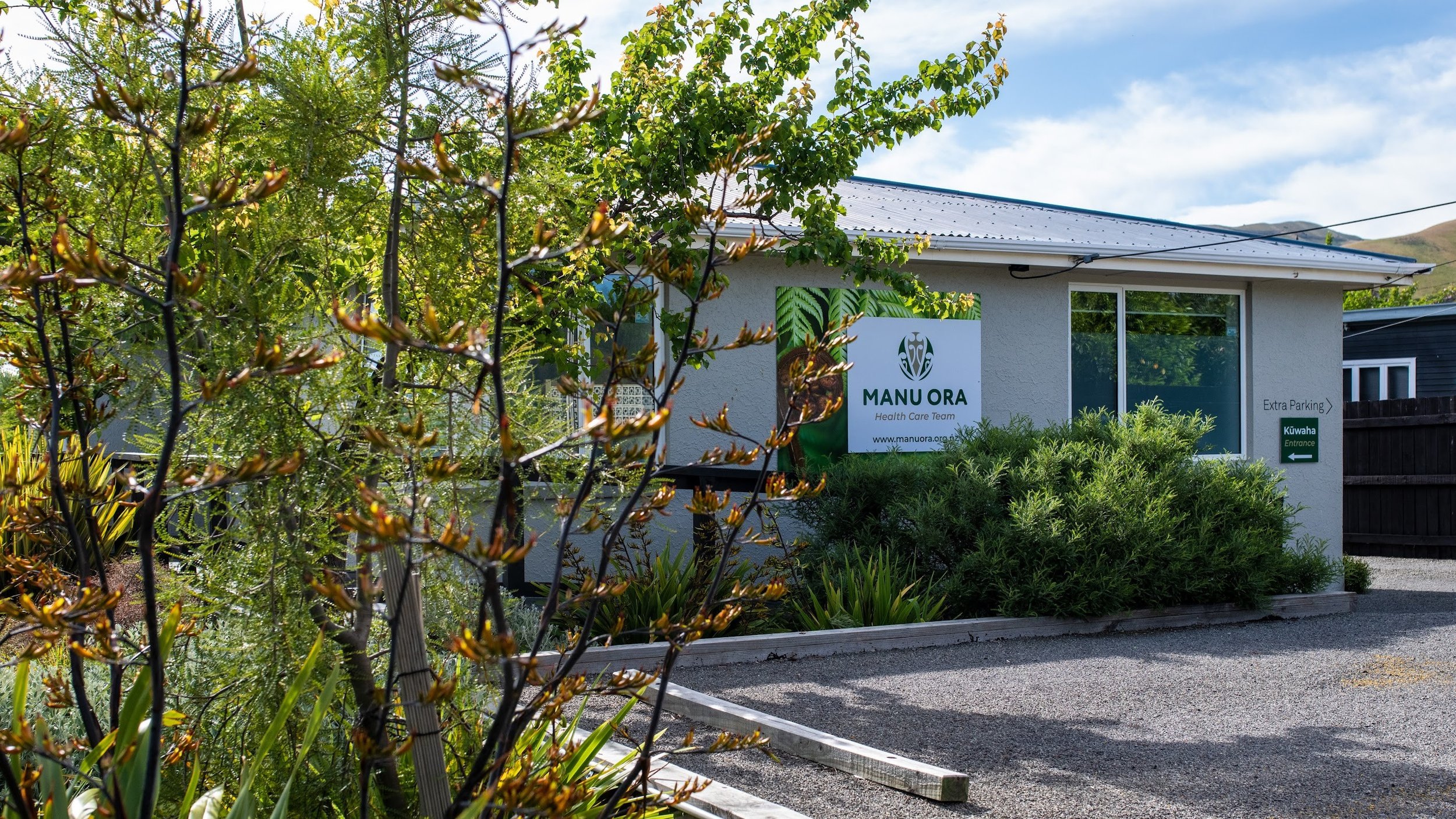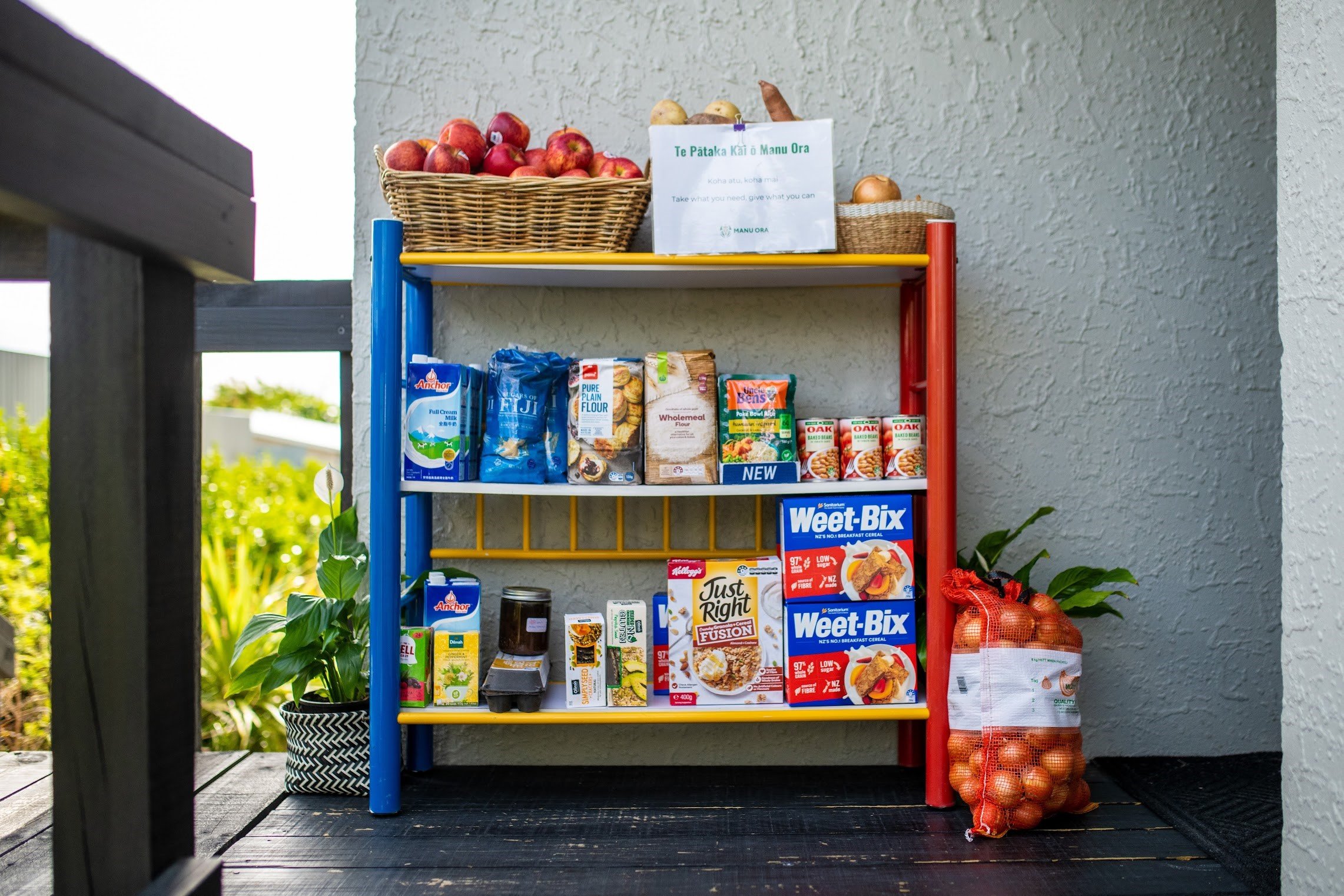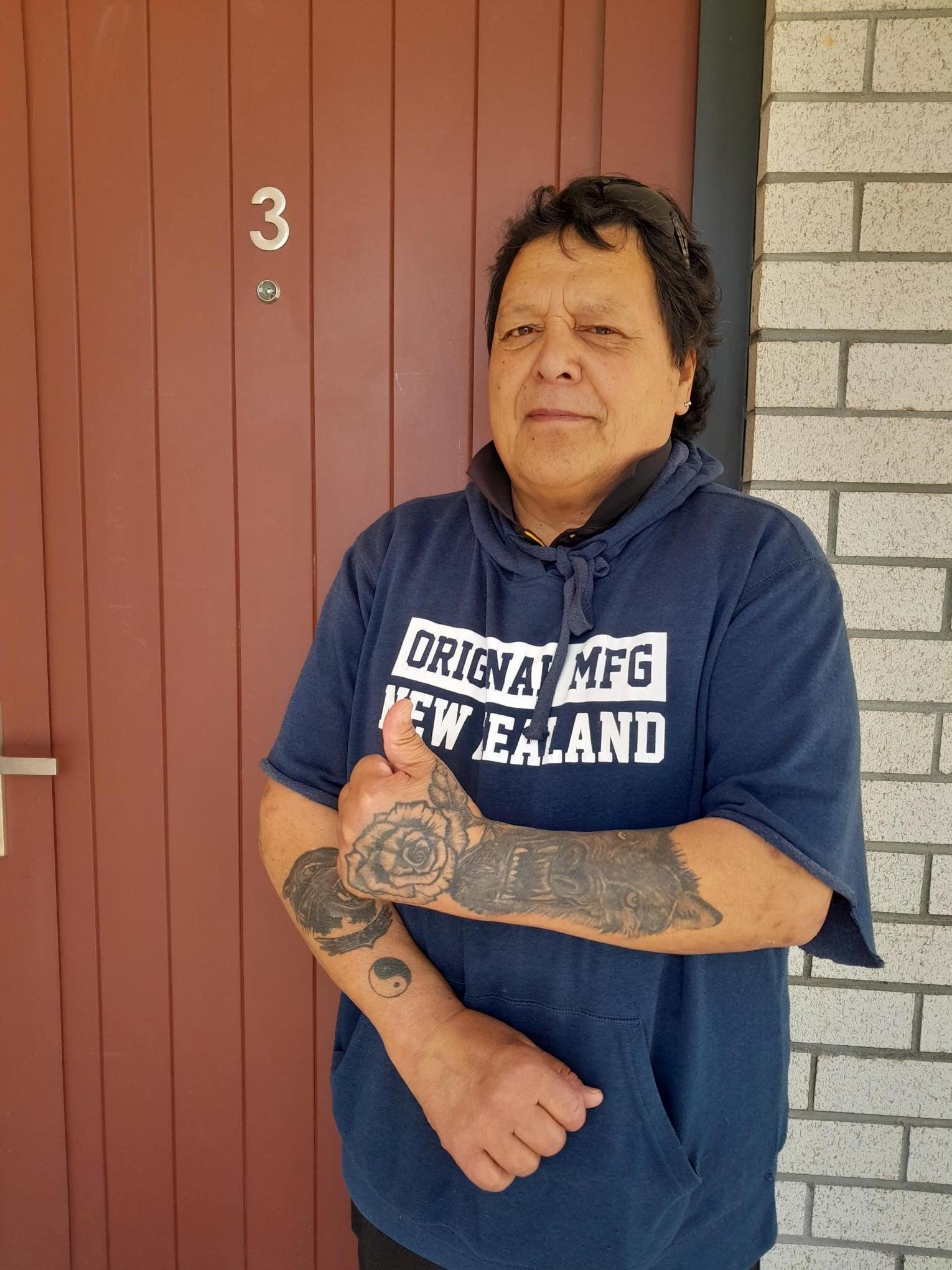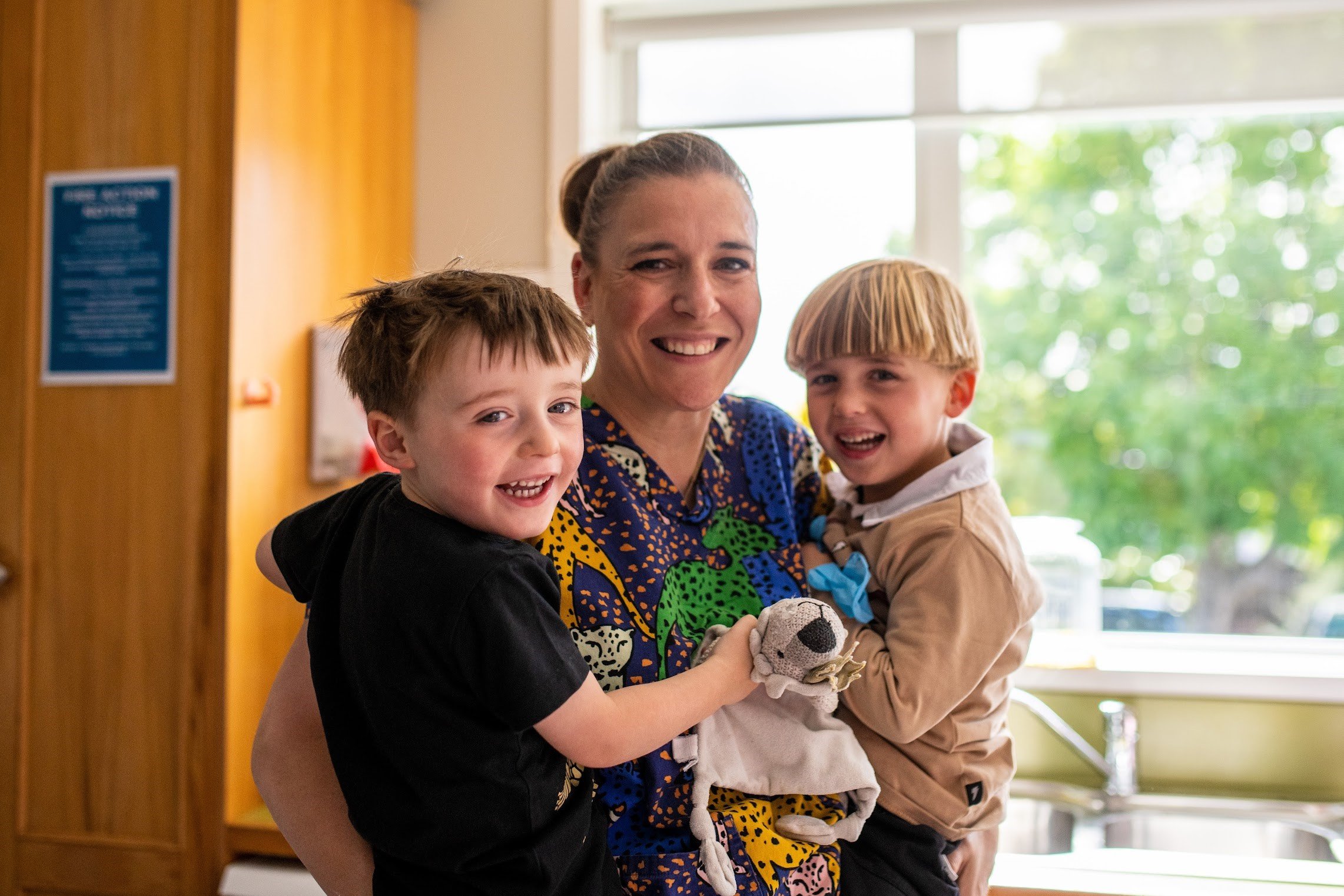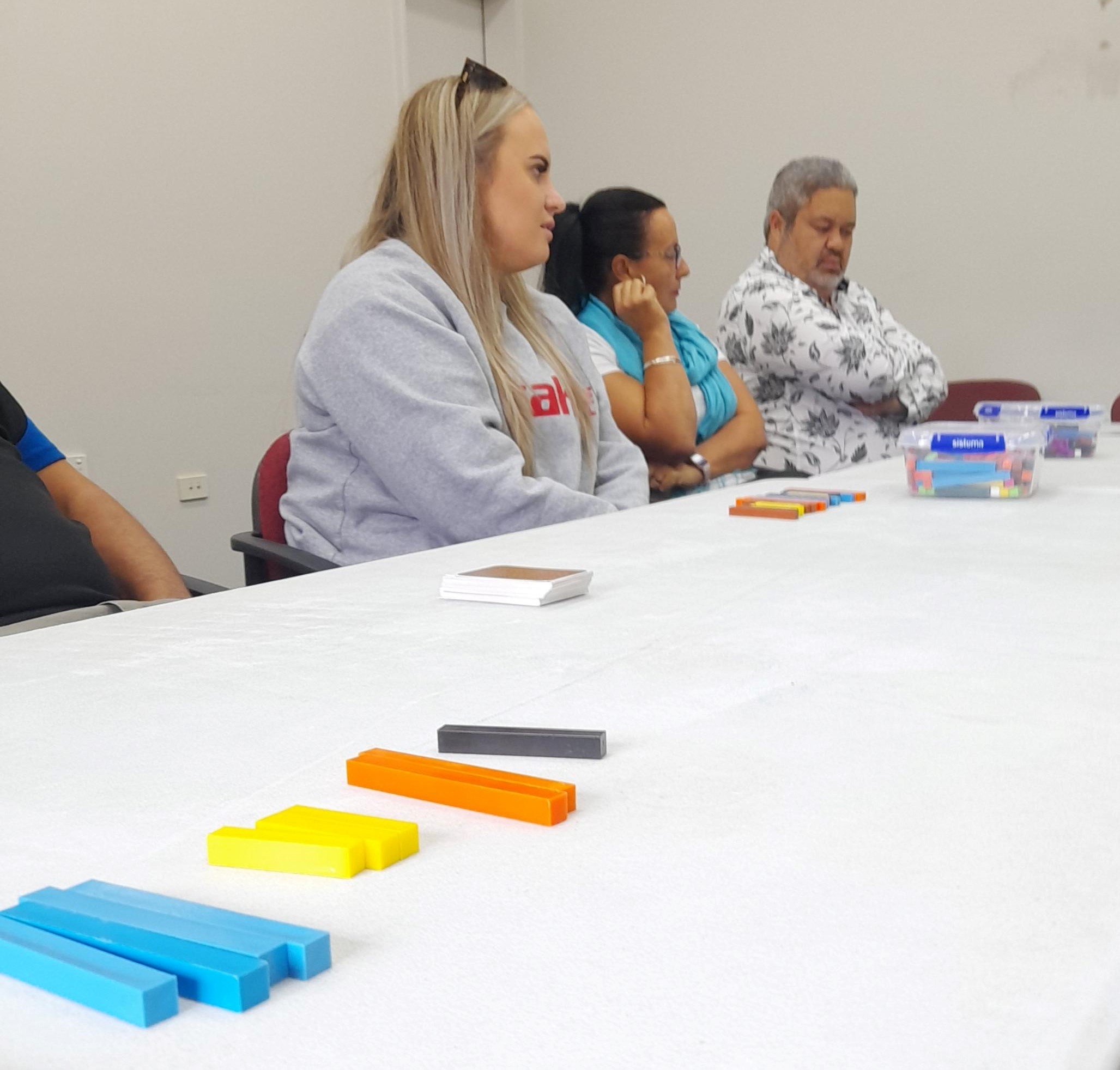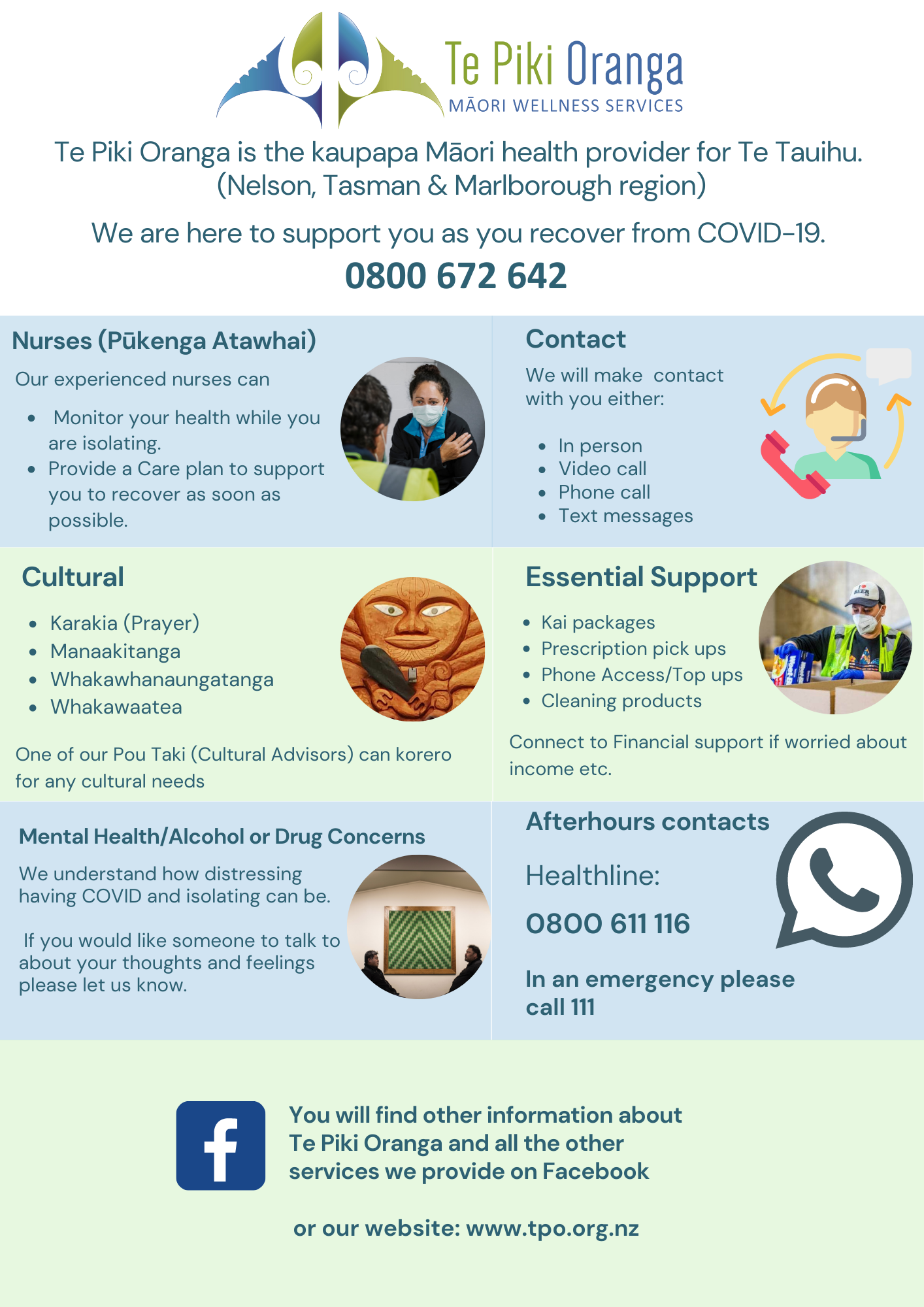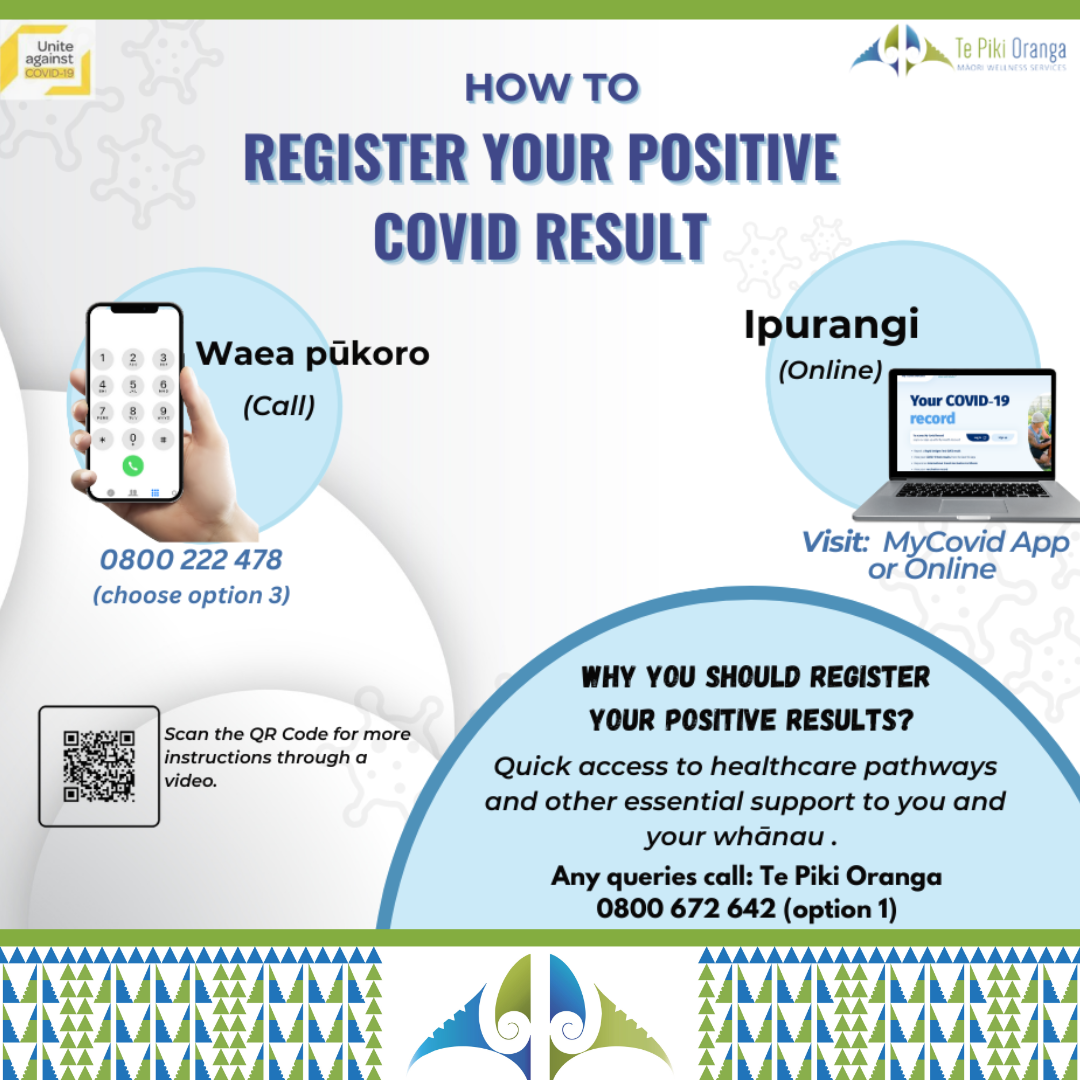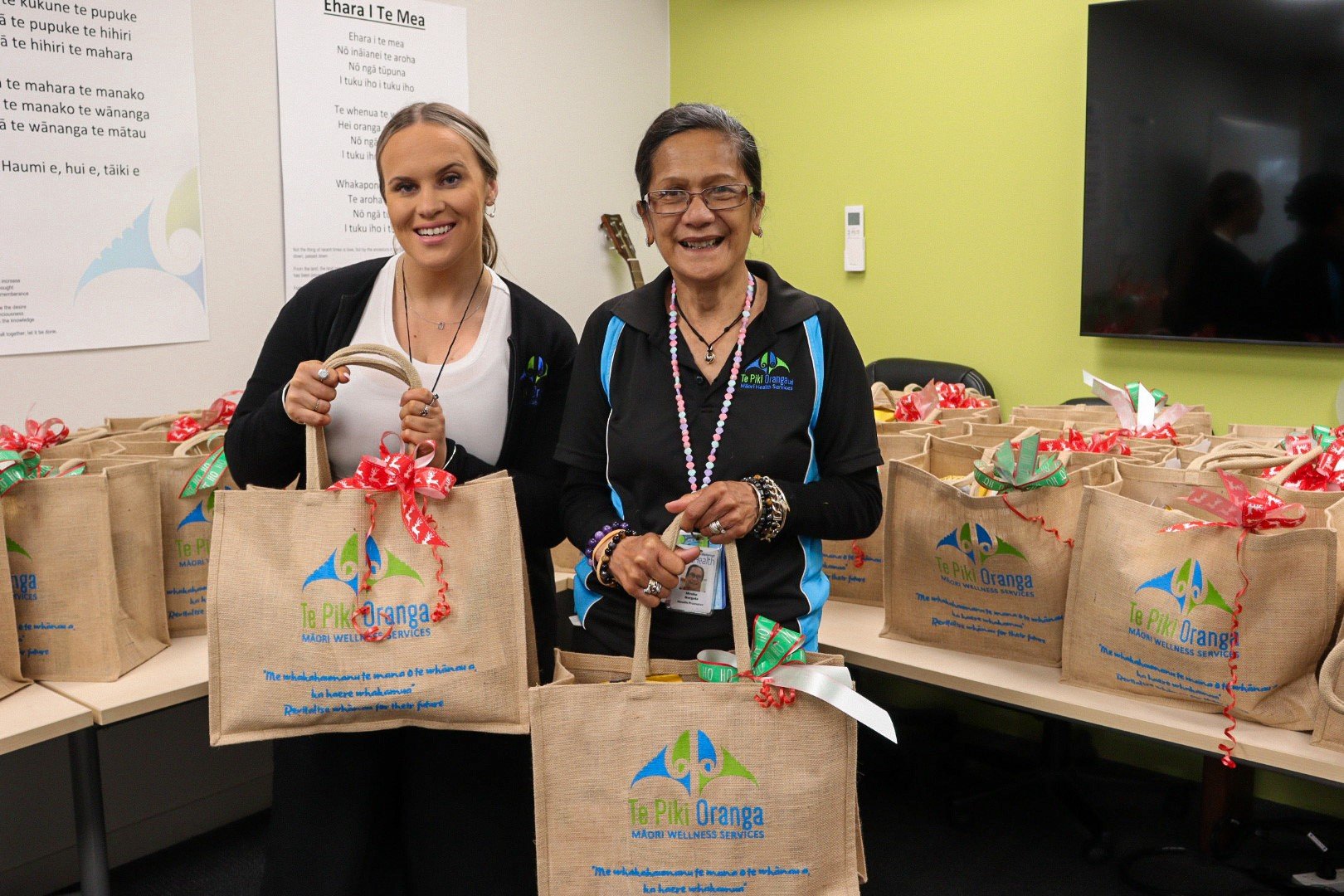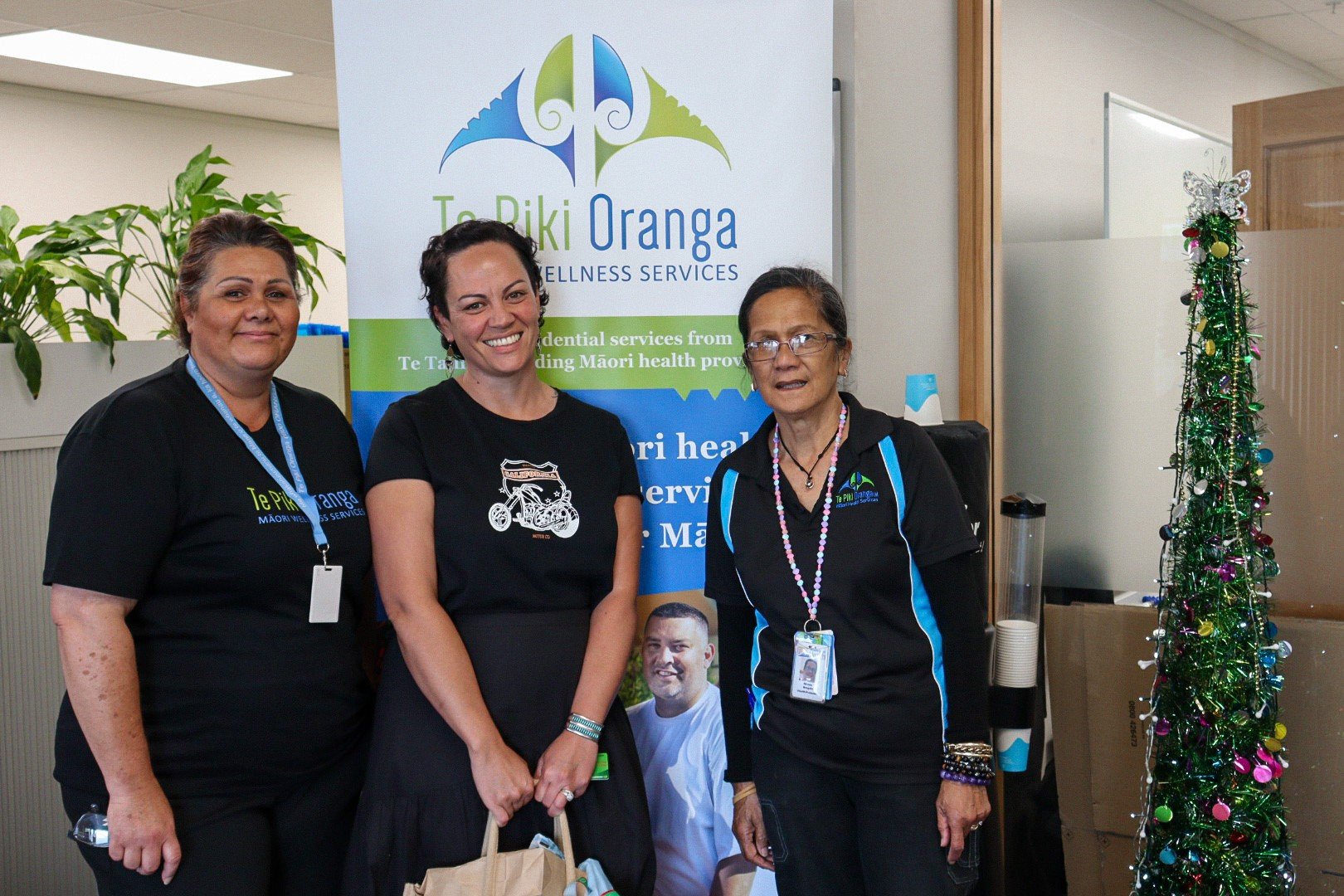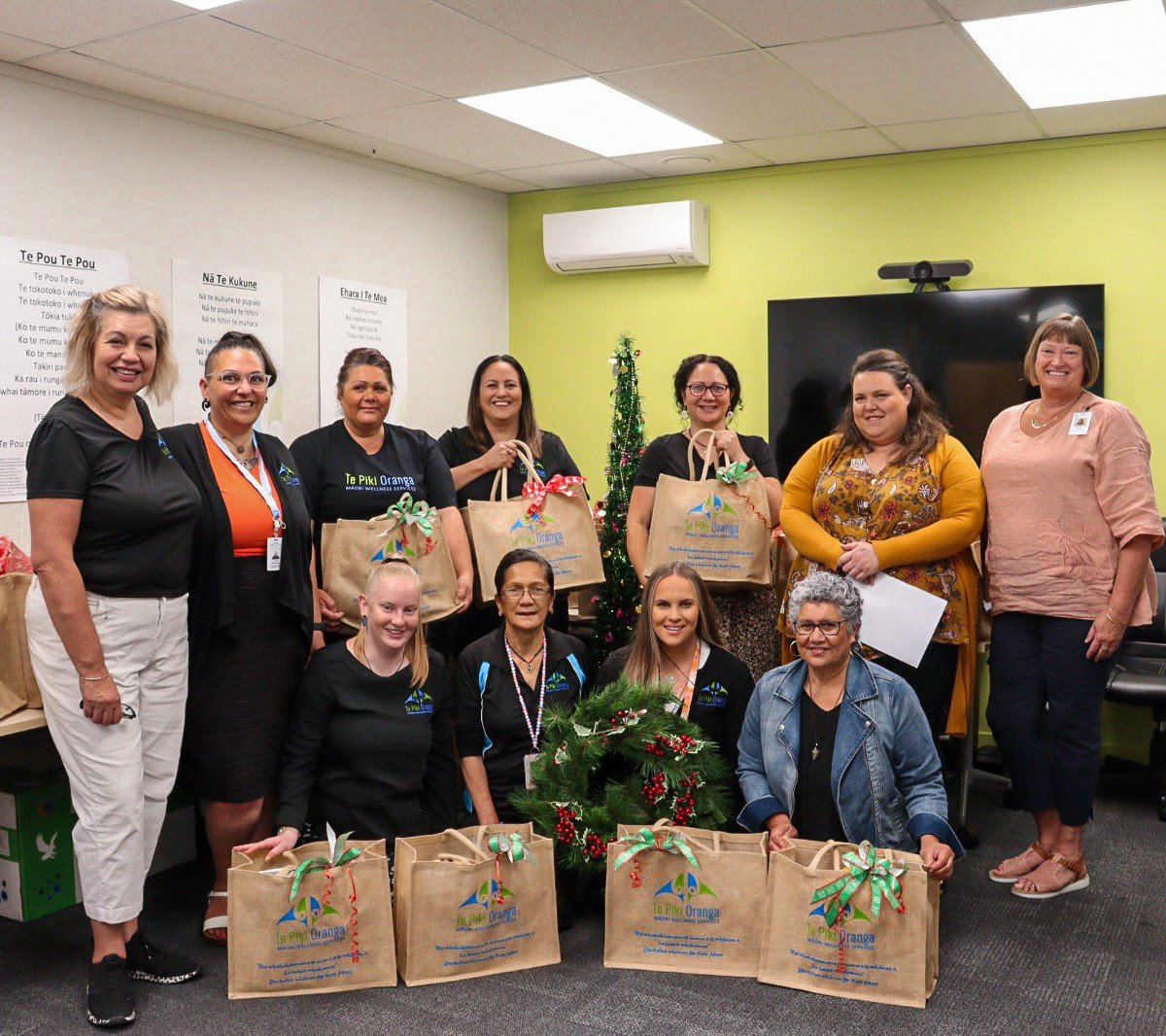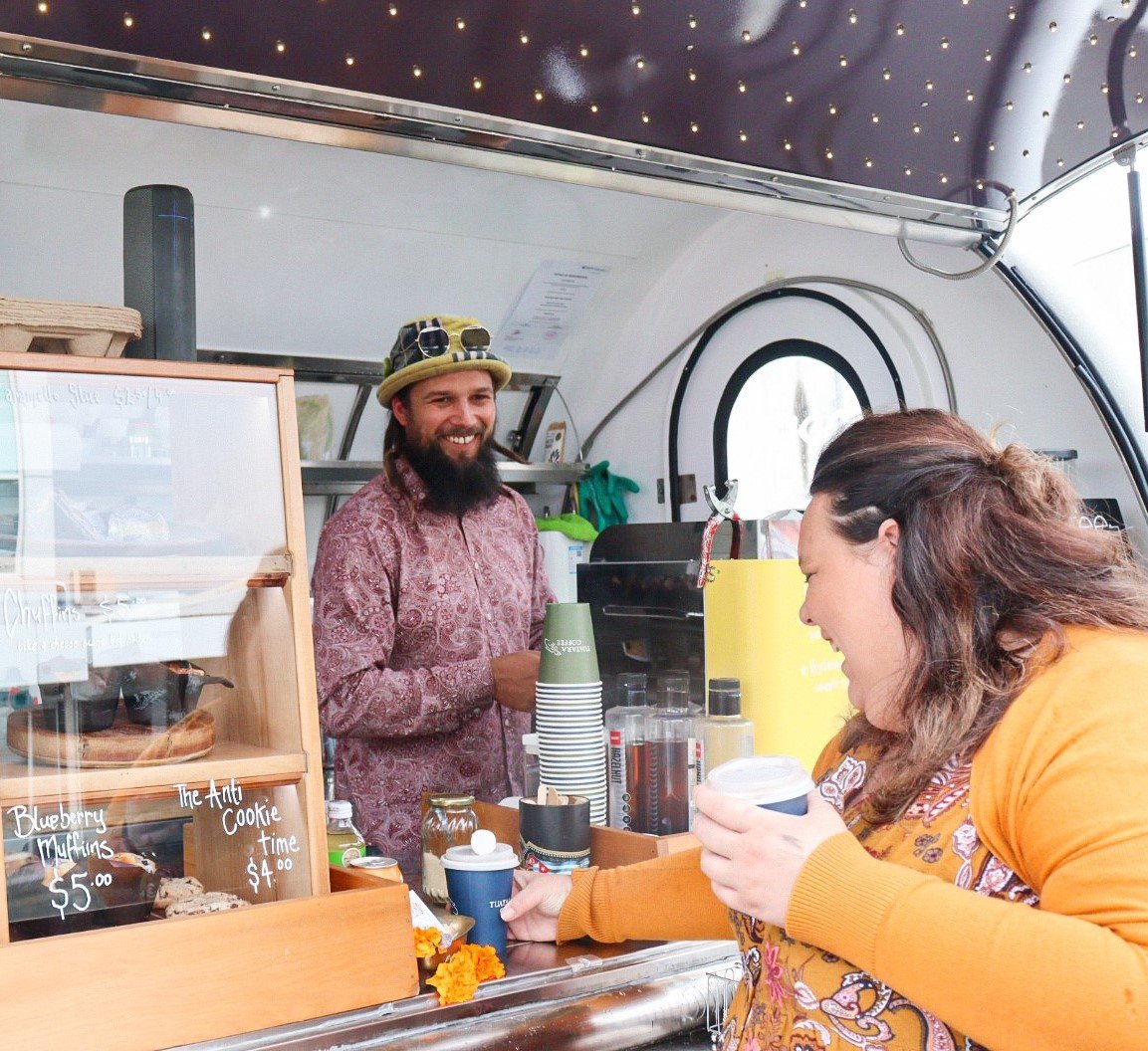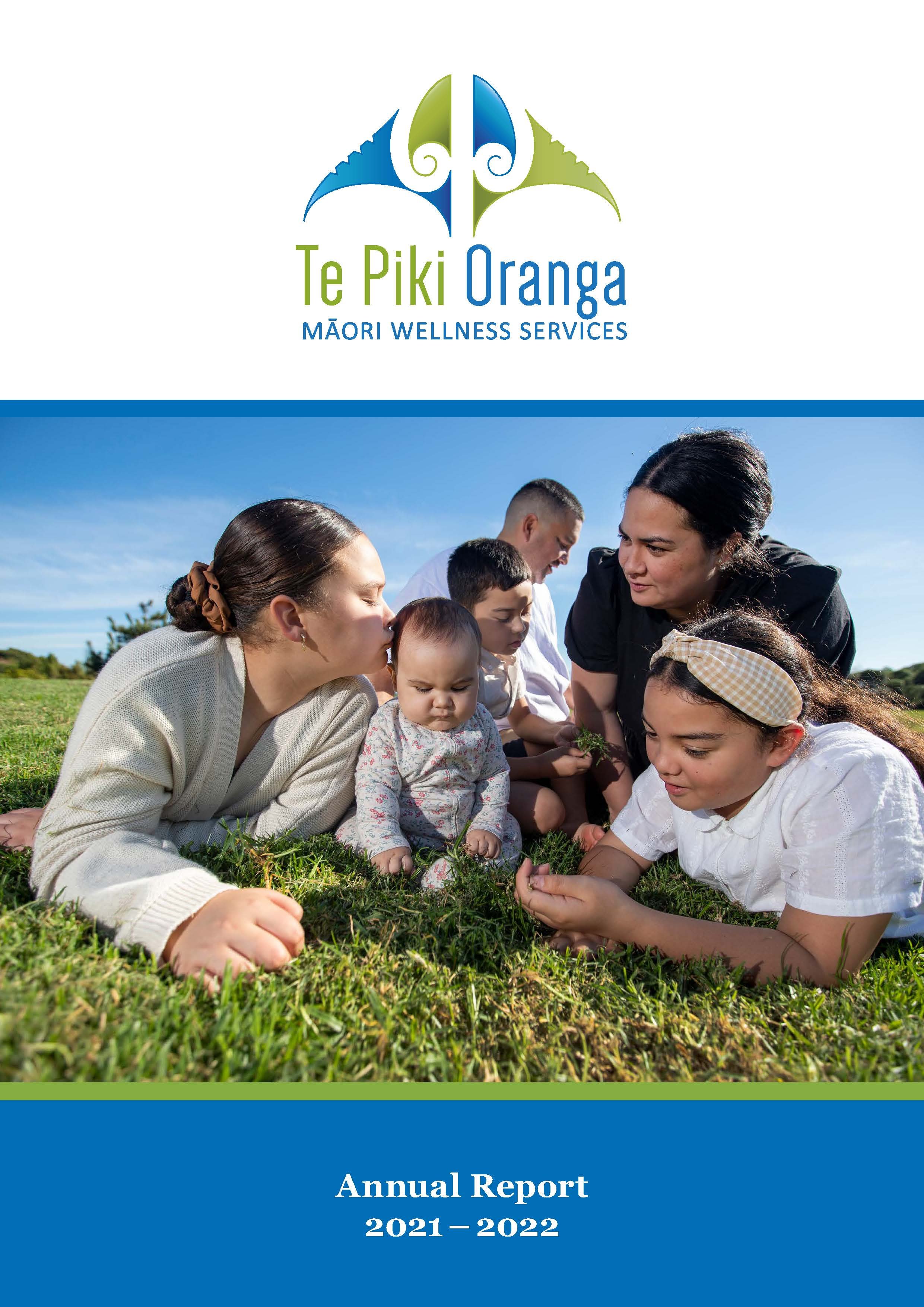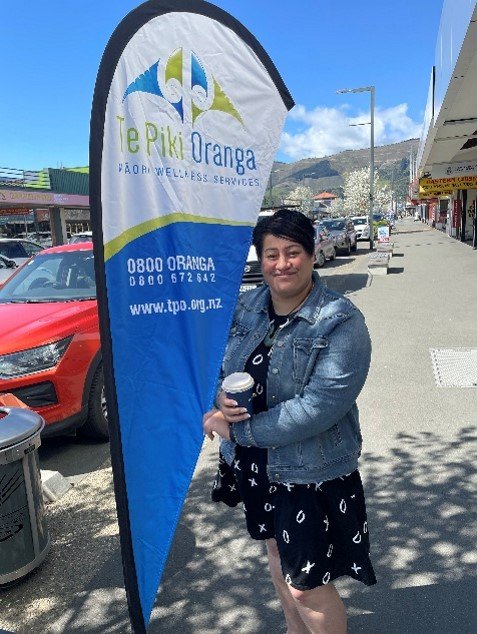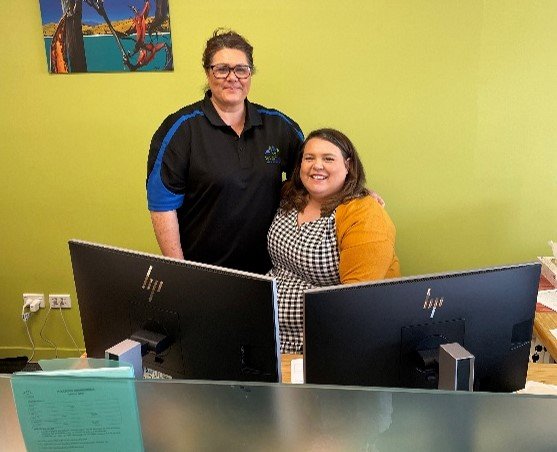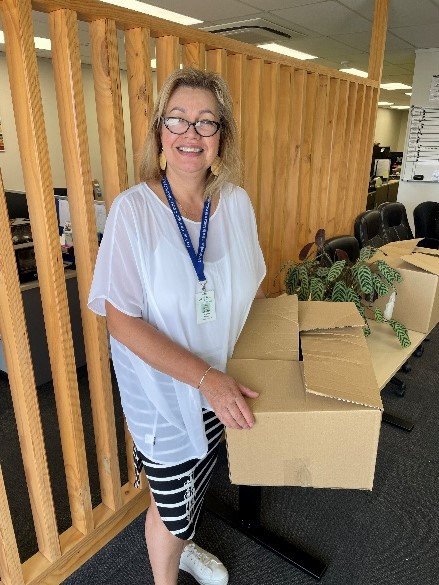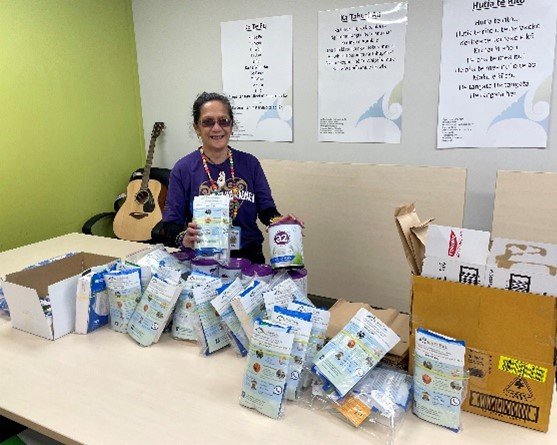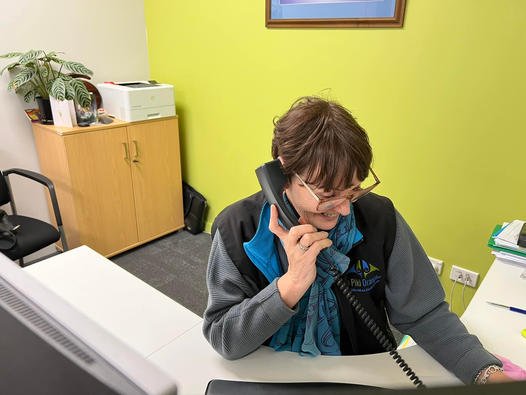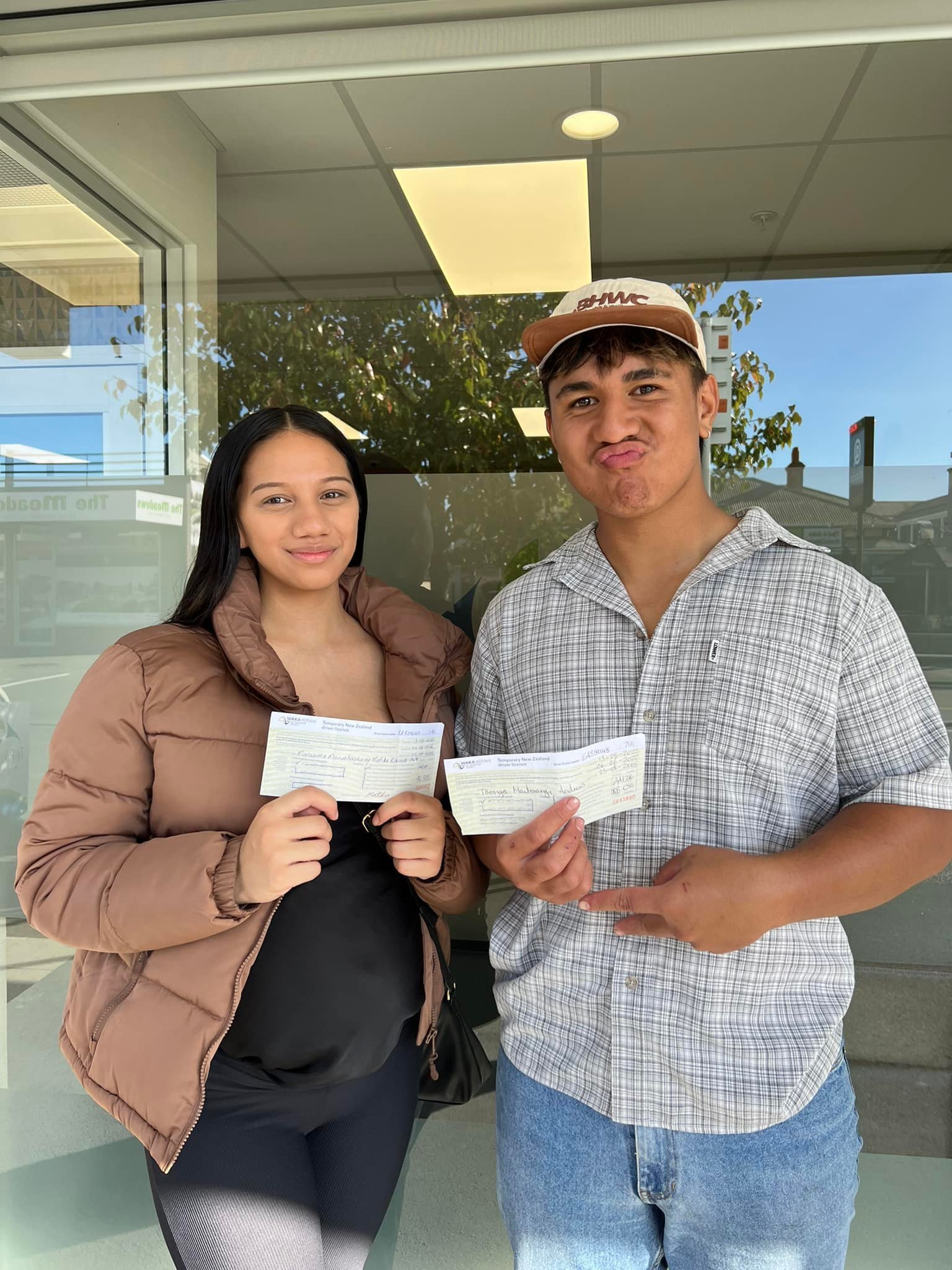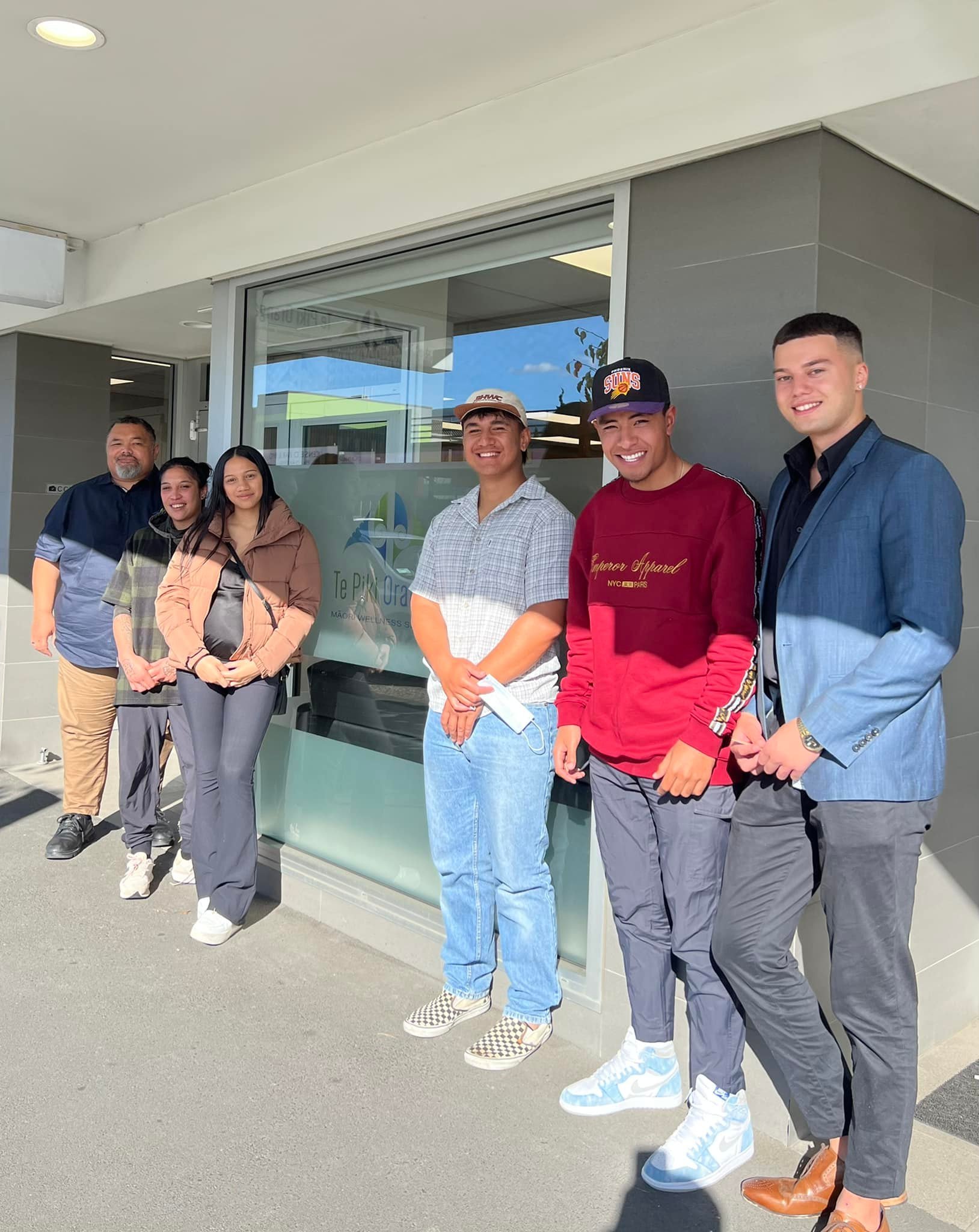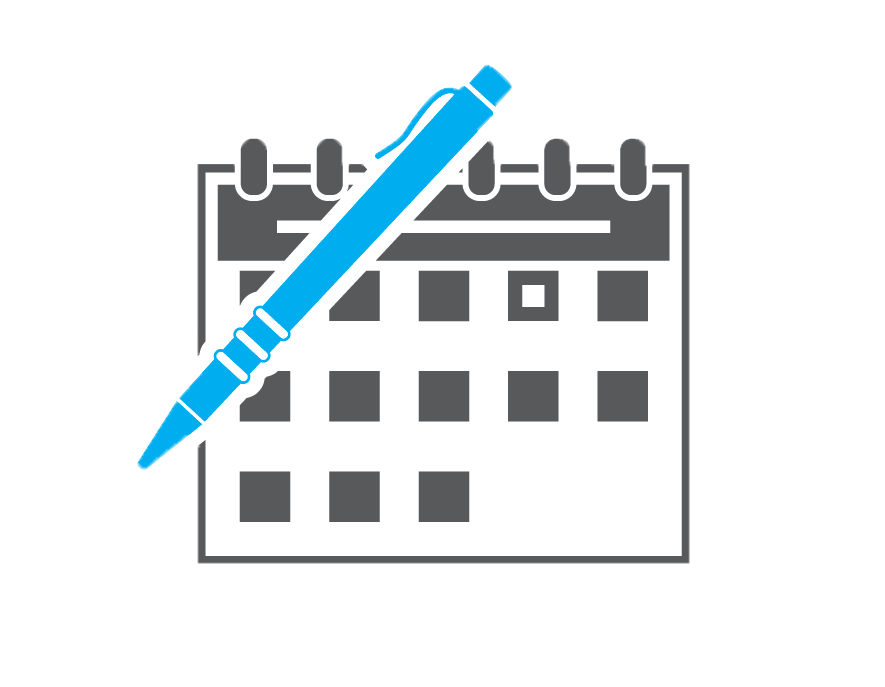A tikanga wānanga for Te Piki Oranga kaimahi was held at Waikawa Marae in December as part of the Te Piki Oranga Cultural Capability Framework Strategy.
Carl Baker, Te Pou Taki, says that wānanga is a place of learning, where kaimahi are taught aspects of celestial and terrestrial Māori knowledge.
“For some kaimahi this was a new experience, and all kaimahi were kept safe and well-informed of the cultural practices. There was time for reflection, karakia, waiata, working together and laughter,” Carl says.
“Wānanga will continue to be an essential component of Te Piki Oranga, especially more beneficial by being on the marae, with mana whenua throughout Te Tauihu.”
The whakataukī Carl chose to describe the tikanga wānanga is: Whatungarongaro te tangata toitū te whenua – as people disappear from sight, the land remains.
Participant Rachelle Tauroa, Kaiawhi Hangarau Whakaaturanga, says the wānanga was an opportunity for kaimahi to learn, and strengthen knowledge, about important tikanga such as pōwhiri.
Kaimahi enjoyed a kōrero from Barney Thomas, Te Tauihu pou tairangahau (extensive cultural advisor) who talked about his life growing up in Waitohi, his mahi with the Department of Conservation and his mahi within the rohe, iwi and hapu whānau of Te Tauihu.
Mr Thomas holds many governance and kaitiaki roles with Ngāti Rārua Ᾱtiawa Iwi Trust, representing the iwi in areas such as resource management, land management and Te Āwhina Marae. In November this year he was awarded Te Tohu Ratonga Tūmatanui o Aotearoa, the New Zealand Public Service Medal as recognition for 40 years of civil service.
Rachelle says another highlight of the wānanga was the workshop around ngā uara (values).
“This started with each tari doing a skit or kōrero around what they have been doing in their tari around ngā uara,” Rachelle says.
One example of this is the kōrero led by Gaynor Rikihana-Takao, Nehi Arahanga for the Motueka tari.
“Gaynor described how our values are a taonga and a way of being within Te Ao Māori, which was supported with a brief kōrero from Chook Norgate.”
Also at the wānanga, Thomas Ngaruhe gave a kōrero about Te Tiriti o Waitangi. And kaimahi all contributed to wānanga duties ranging from breakfast and clean-up, to leading karakia and waiata.
Photo captions, from top left and going around clockwise:
Te Piki Oranga Board Chair Jane de Feu
Te Piki Oranga Tumuaki Anne Hobby
Barney Thomas
Ngareta Campion
Kōrero about ngā uara, values
One of many waiata
Thomas Ngaruhe
Te Piki Oranga Te Pou Taki Carl Baker
Kaimahi at the tikanga wānanga held at Waikawa Marae in December 2023

